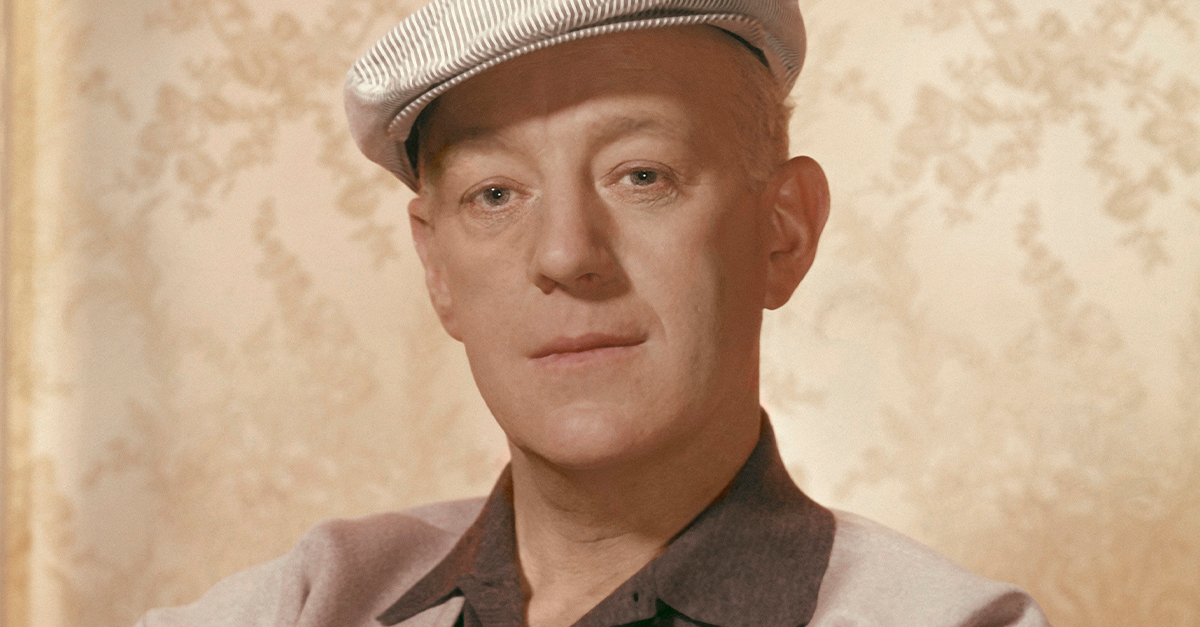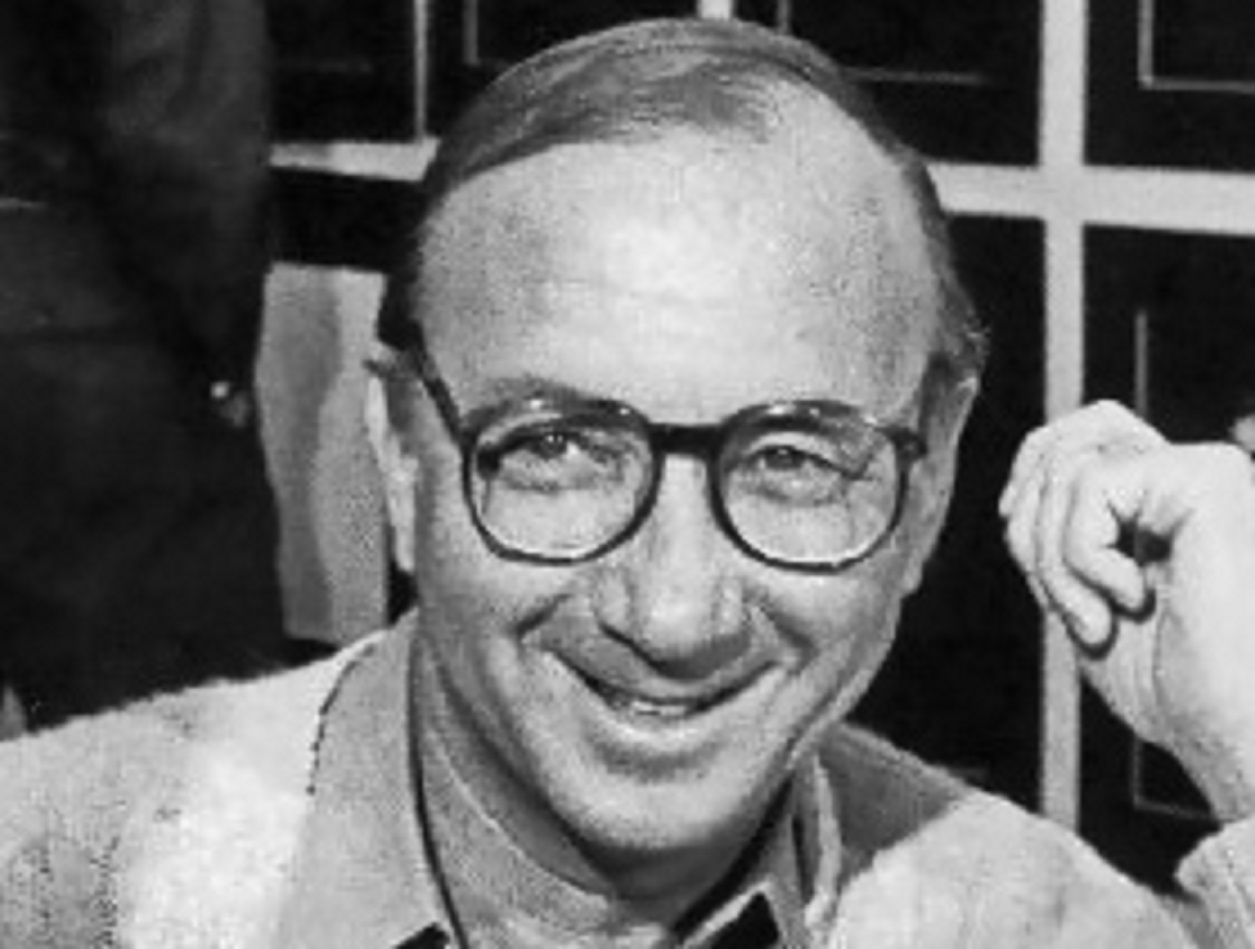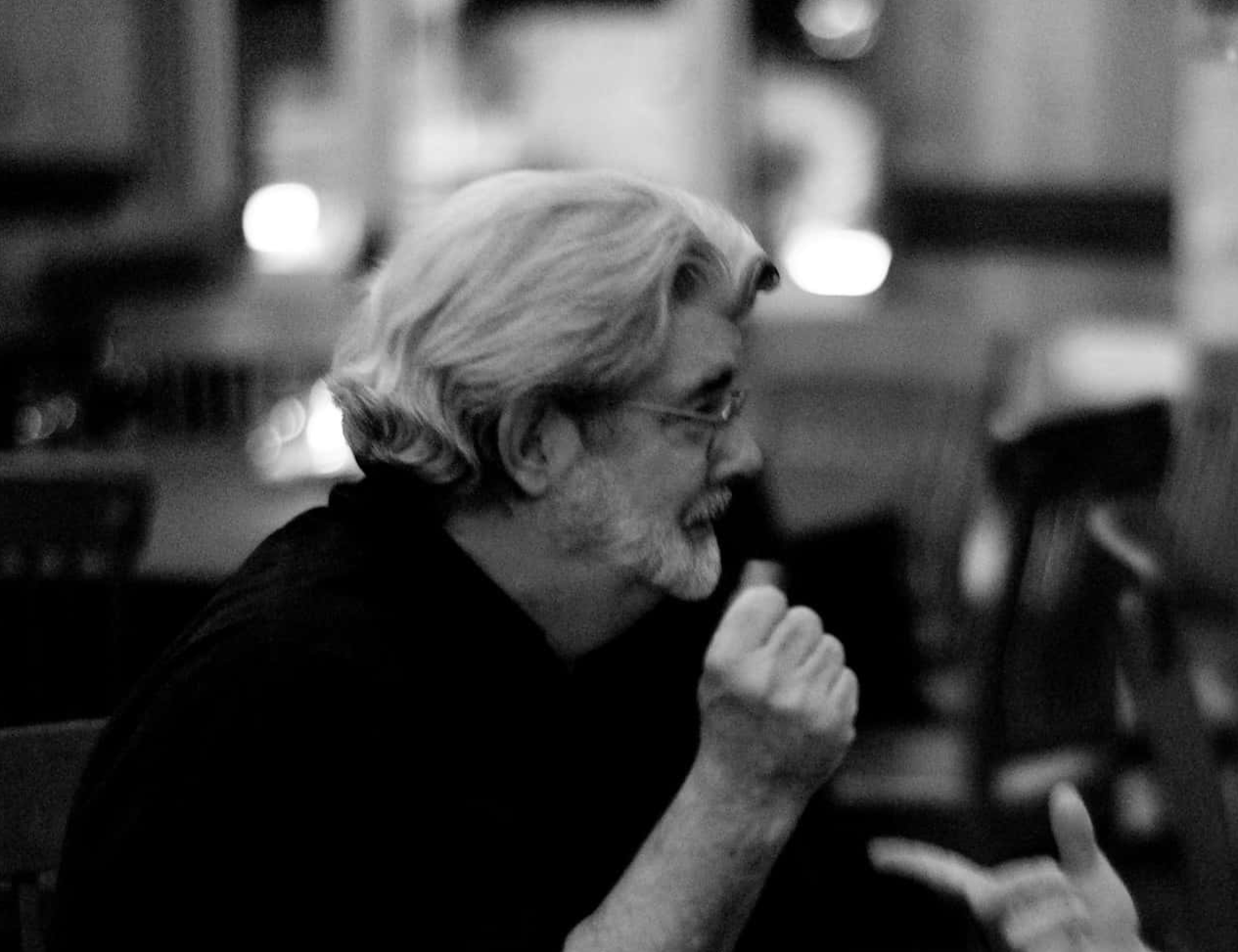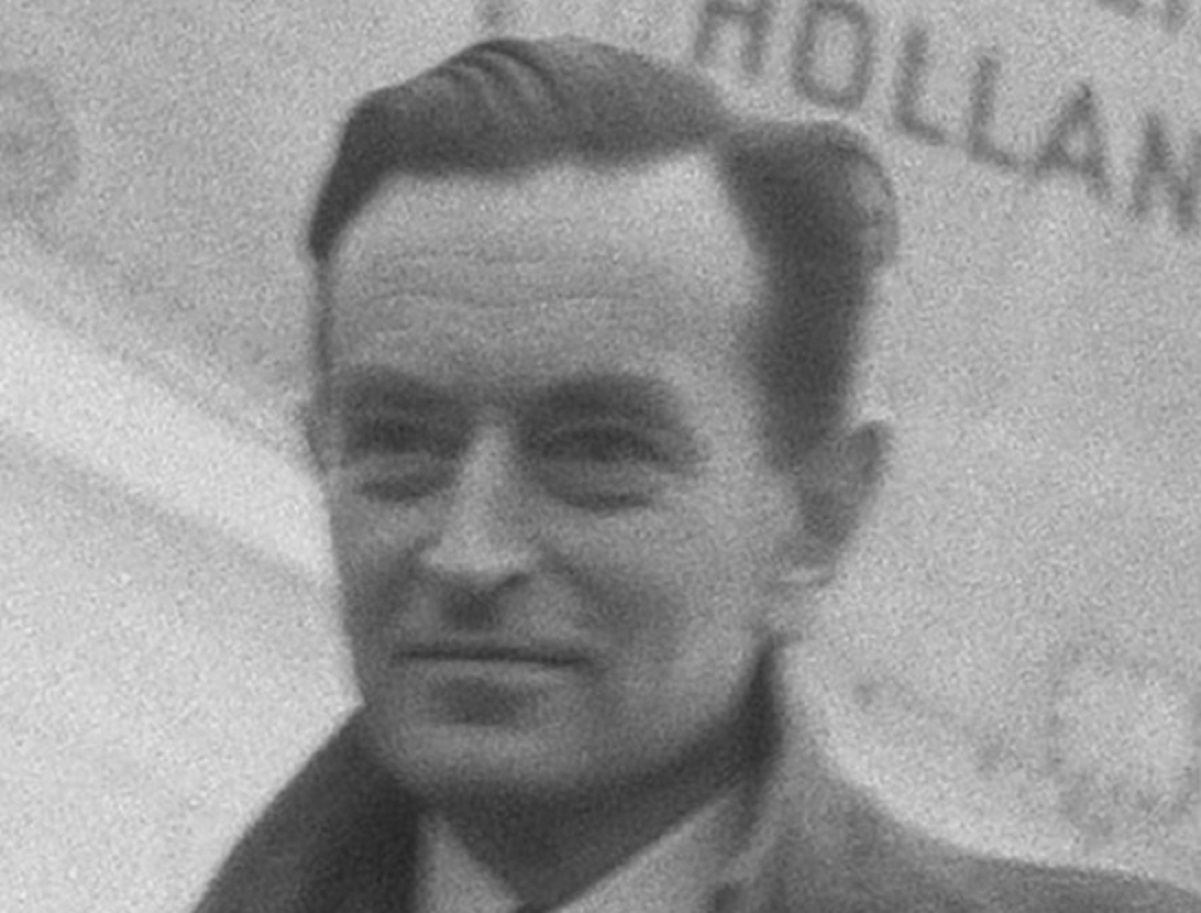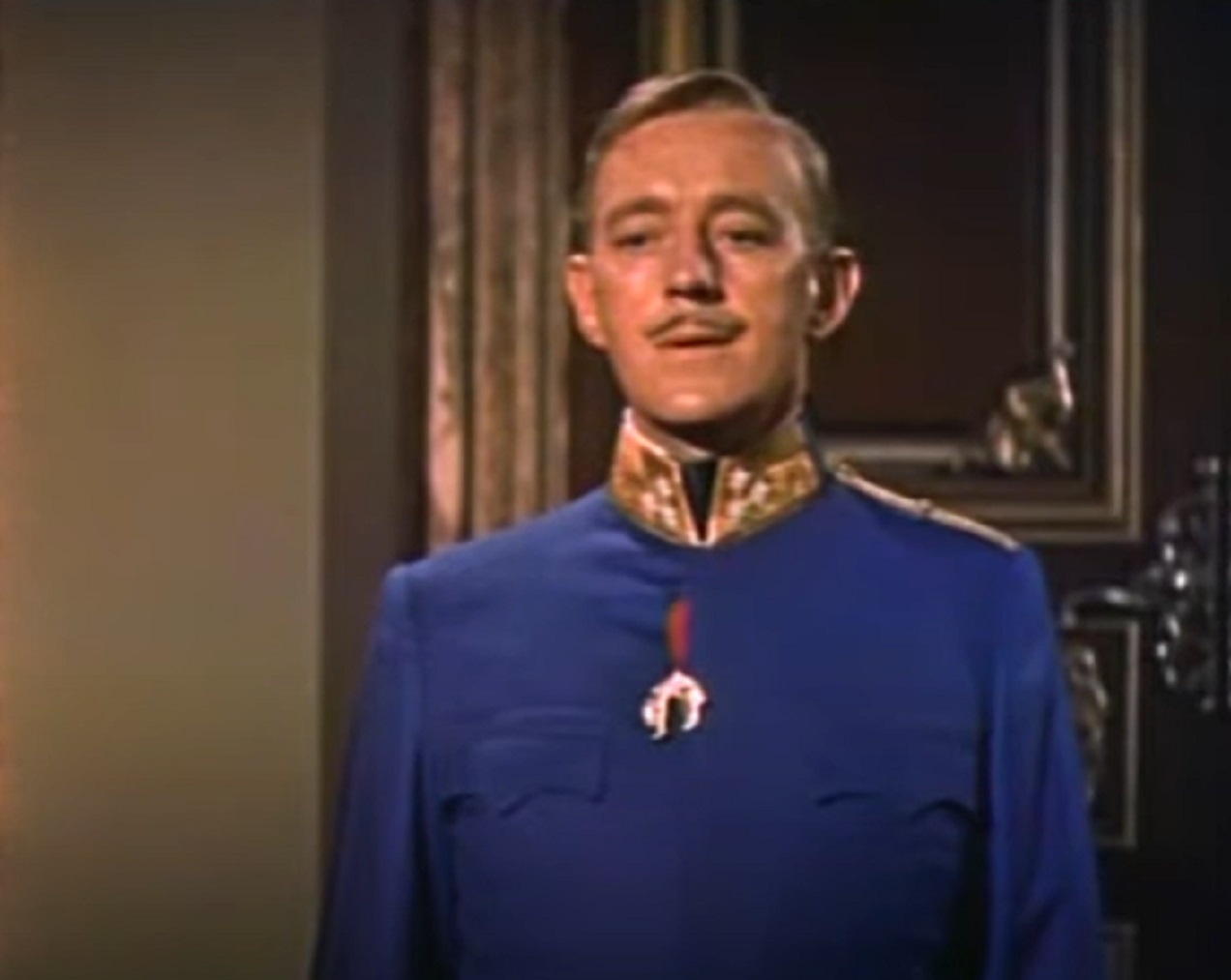The star of many epic films, audiences know Alec Guinness as a man who disappeared into his roles. This uncanny skill would help him with another disappearing act—into his secret double life.
1. He Hated His Iconic Role
Alec Guinness was already one of Britain’s most respected film stars when he decided to take a chance on an American film with an unknown cast and a new director. Guinness thought he was slumming it with this silly American film called Star Wars, but this role ended up being the one that made him a superstar.
Sadly, he had to spend the rest of his life known for a movie he hated. 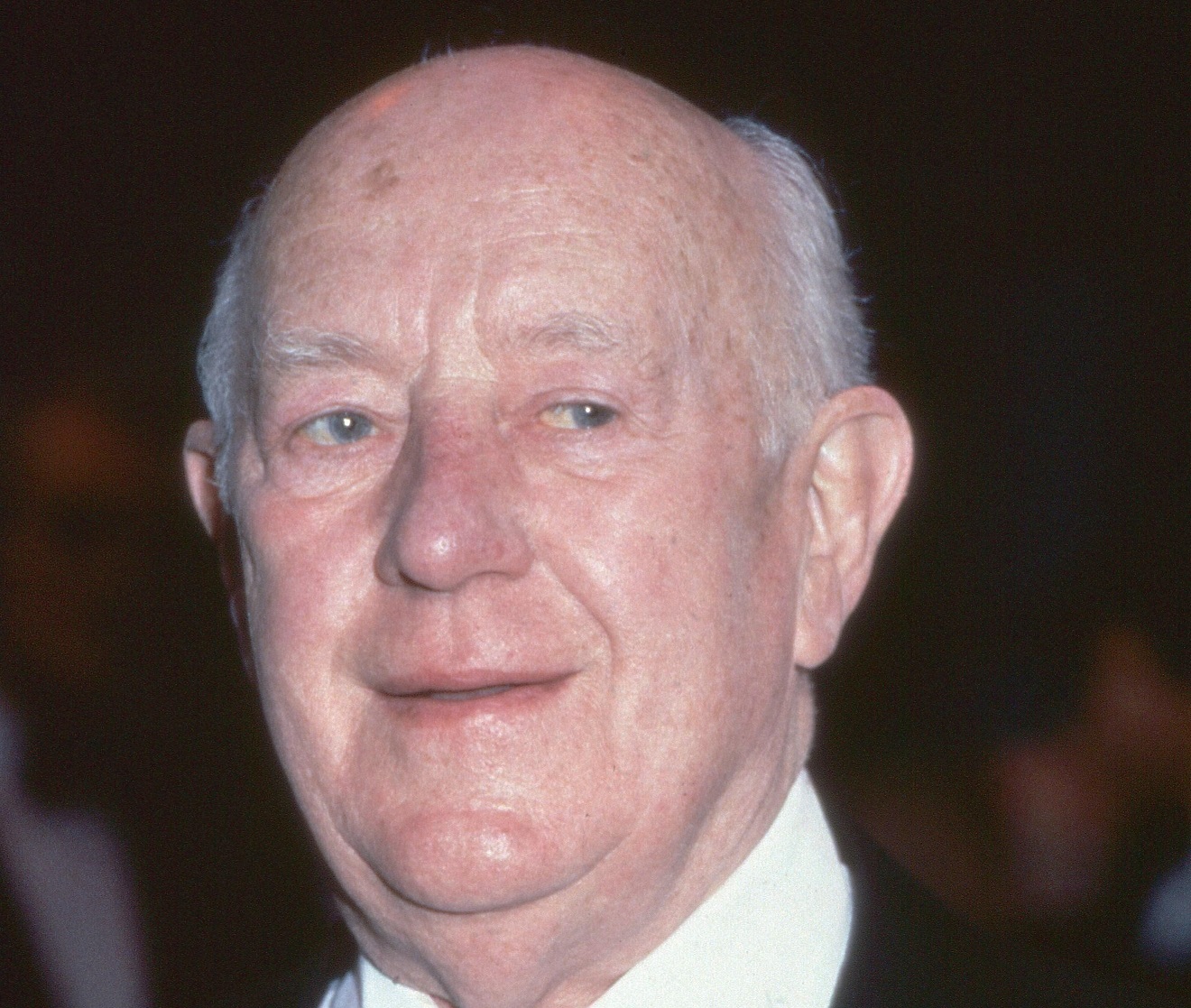 David Fowler, Shutterstock
David Fowler, Shutterstock
2. He Didn’t Know Who His Father Was
Alec Guinness was born on April 2, 1914 in London, England, but there was something missing from his birth certificate. Mom listed her own name as Agnes de Cuffe, and the baby’s first and second names as Alec Guinness. What was missing was dad. English law stated that an unmarried father must actually be present in order to enter his name on the certificate.
Not only was Guinness’ dad not present, he had no idea who his father actually was. 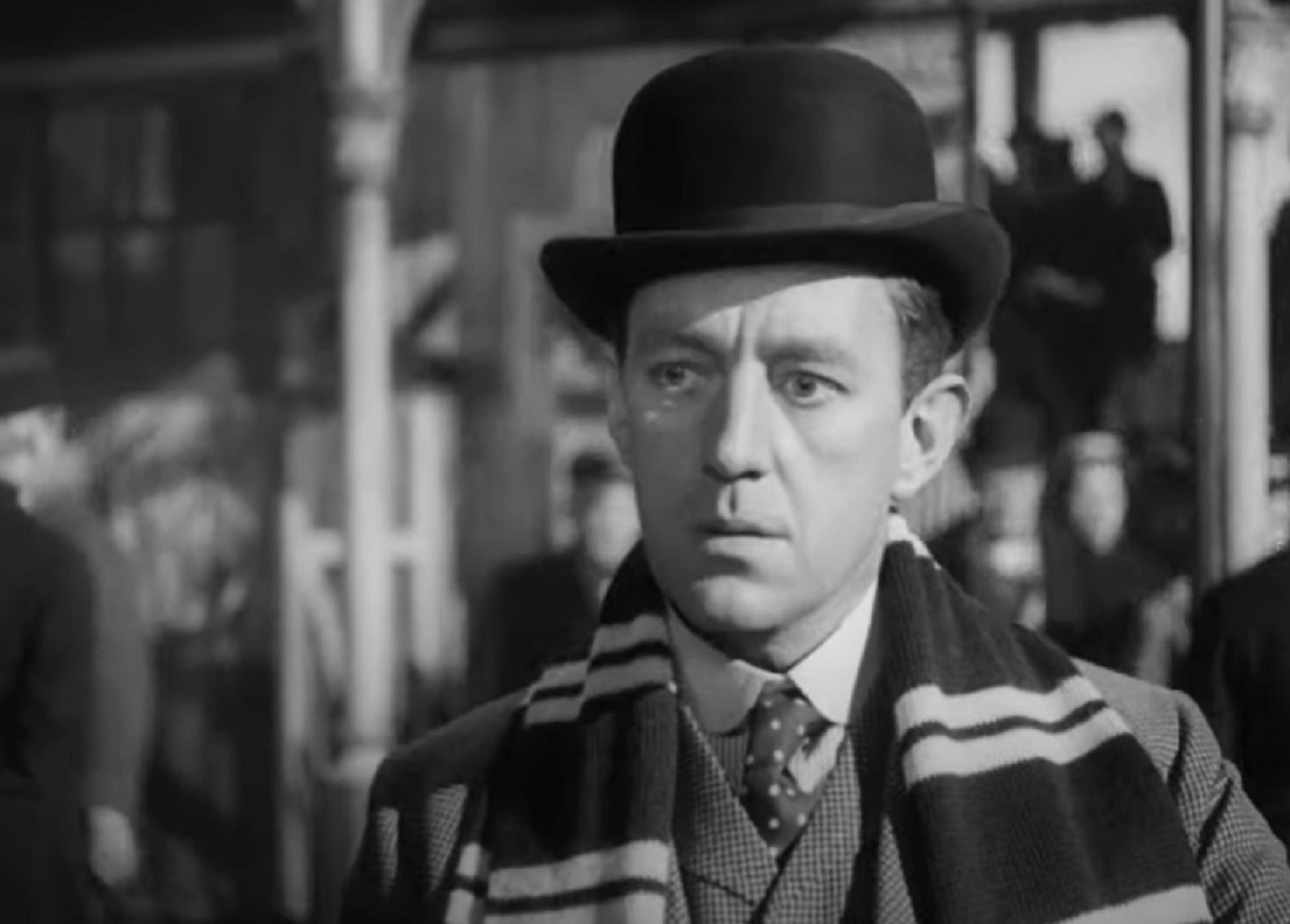 Ronald Neame Production, The Promoter (1952)
Ronald Neame Production, The Promoter (1952)
3. His Mother Was Wild
Years later, Guinness told writer John le Carre that his mother wasn't exactly the purest woman in the world—far from it. He said that during a regatta she slept with not one man but the whole crew of a yacht. His guess was that his father was probably the lowly cook on the ship.
As it turned out, it wasn’t the cook: His most-likely father was someone he already knew. 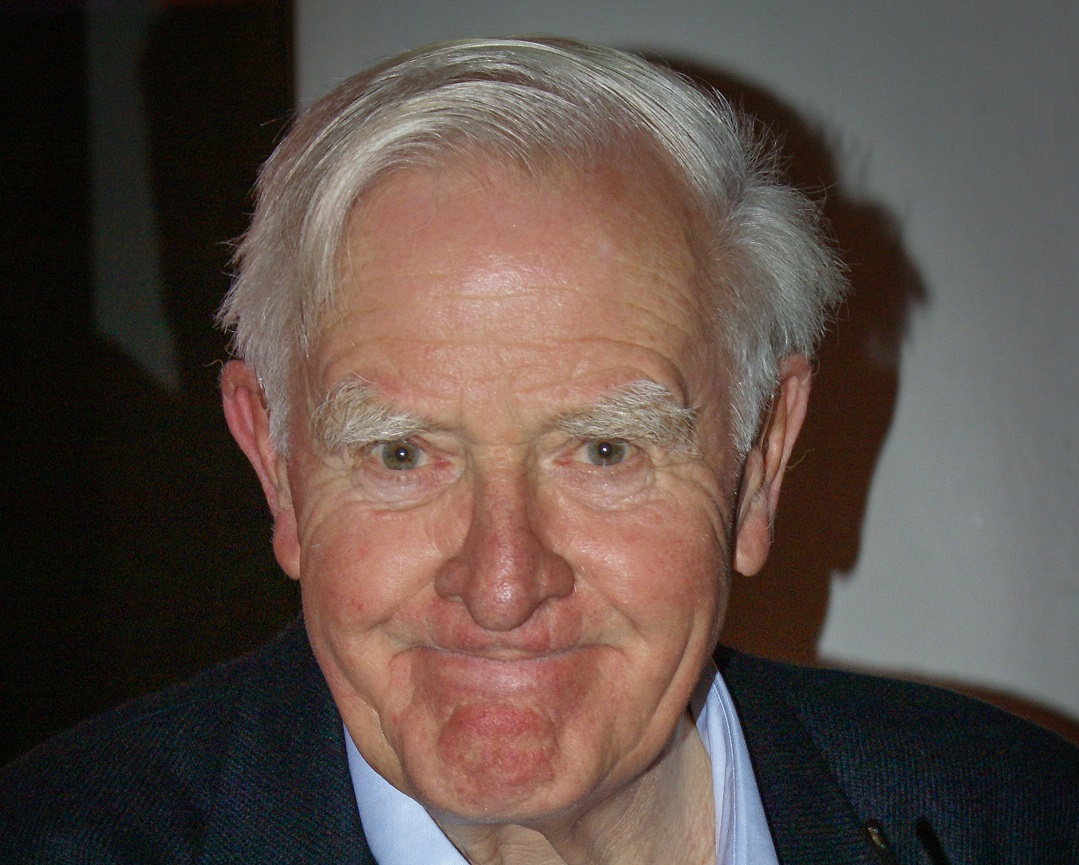 Krimidoedel, CC BY 3.0, Wikimedia Commons
Krimidoedel, CC BY 3.0, Wikimedia Commons
4. He Called Him Uncle
As Guinness was growing up, he may have noticed a guy occasionally hanging around the family home. This was a Scottish banker named Andrew Geddes, who mom said was his uncle. Geddes was a very generous uncle and paid for Guinness' expensive boarding school. With no help from mom, Guinness eventually figured out the truth. Though he never proved it, he believed Geddes was his father.
Still, Guinness knew he couldn’t count on “uncle dad” for everything and needed a career. His poor choice would leave him close to starving. 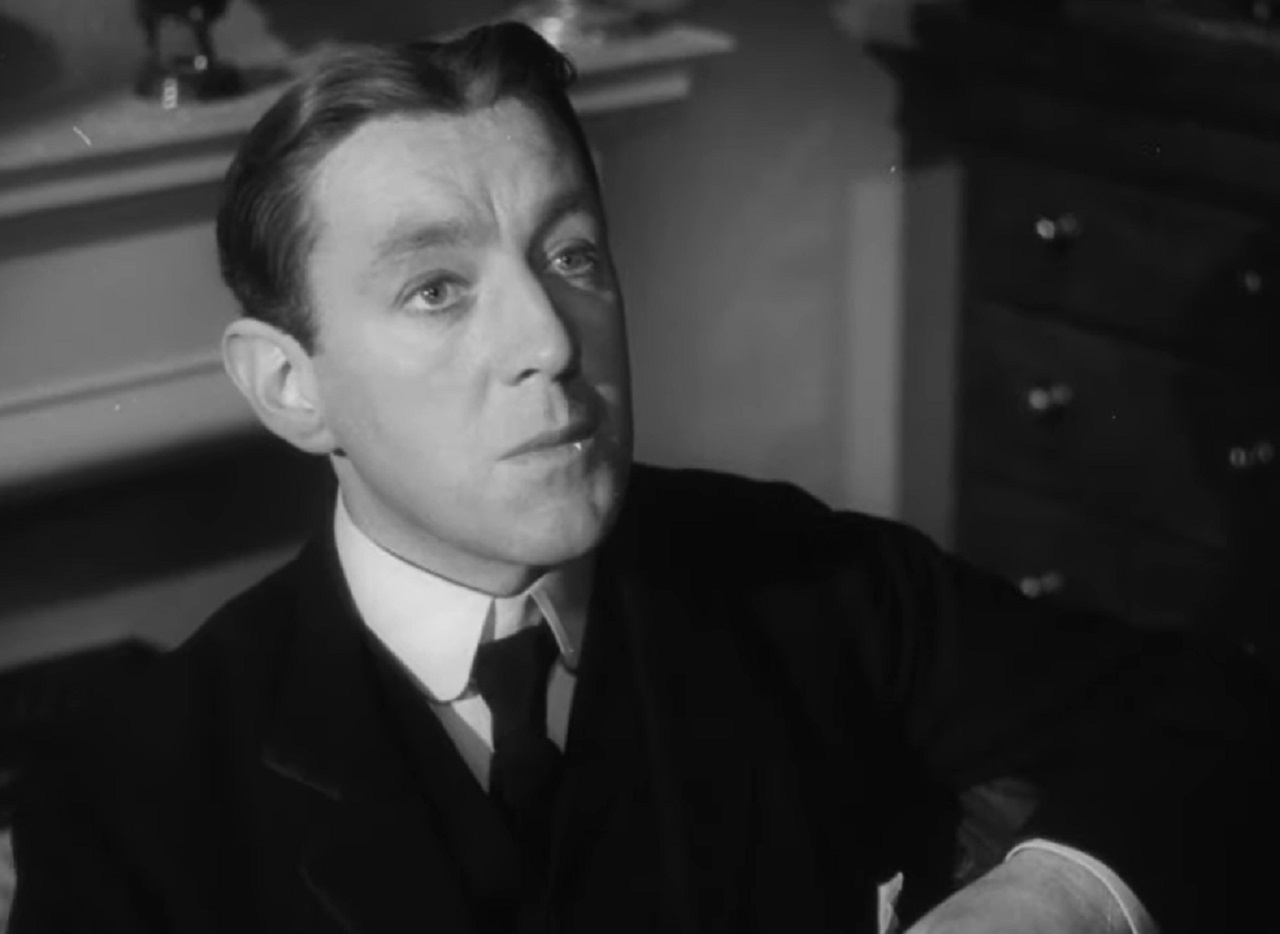 Ronald Neame Production, The Promoter (1952)
Ronald Neame Production, The Promoter (1952)
5. He Struggled To Pay
Guinness joined a theater company, but in his first play he was nothing more than an extra. He then graduated to understudy and started making the equivalent of £1 a week. It was a starvation wage, but Guinness was paying his dues and hoping for greatness.
What Guinness needed was something to define him as a performer. At the age of 22, he found exactly what that was. 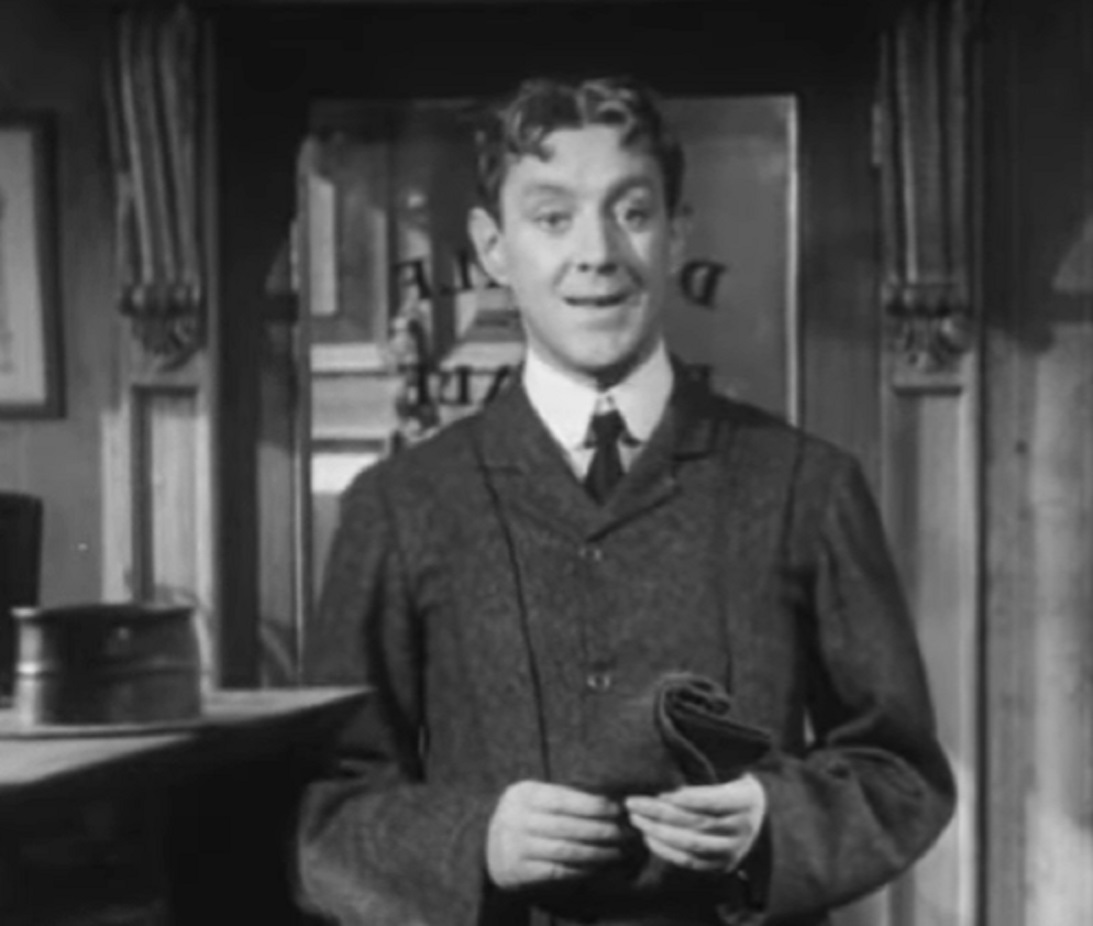 Ronald Neame Production, The Promoter (1952)
Ronald Neame Production, The Promoter (1952)
6. She Humiliated Him
In 1936, Guinness got a small role in Shakespeare’s Hamlet and realized that he’d found his niche. What followed were almost countless roles in Shakespearean plays, but also frequent humiliation. Many nights after his show, his mother would be waiting near the theater. Was she there to congratulate him? Hardly. She’d usually be inebriated and hoping for a handout of cash.
Guinness’ money from the stage was barely enough for him as it was—but he’d soon be making the big bucks. 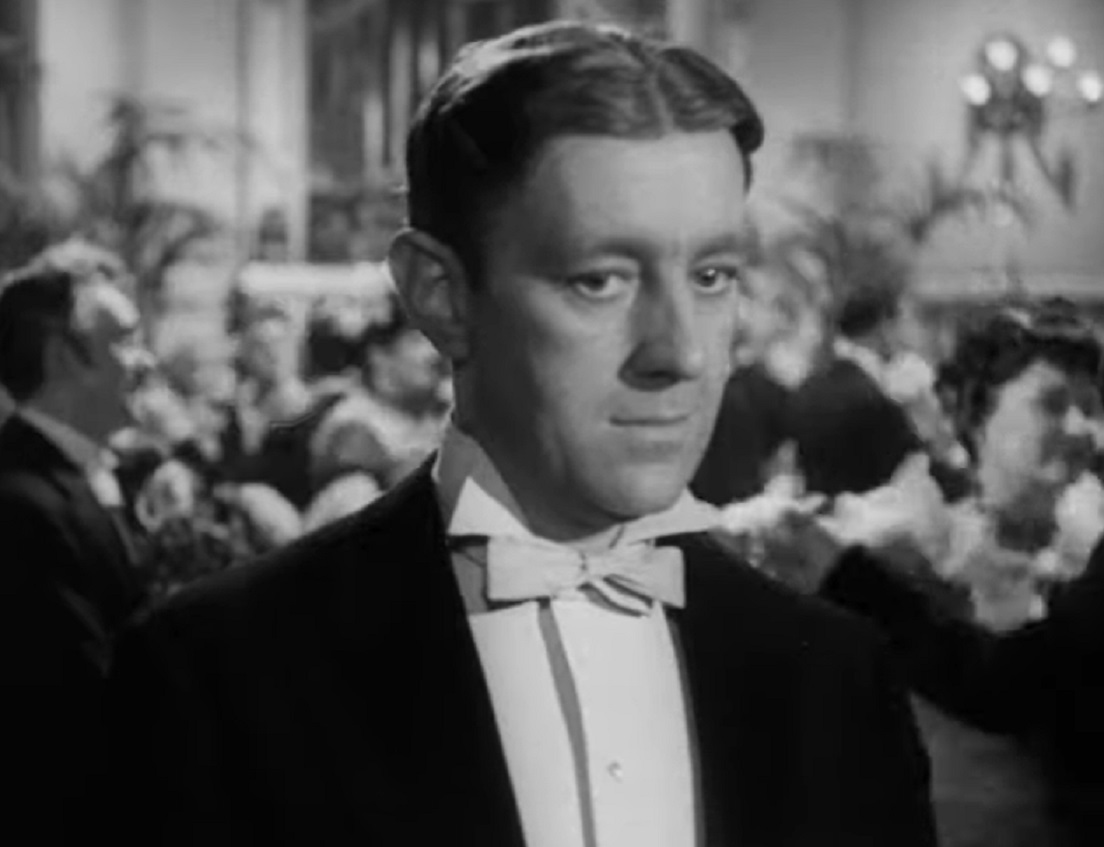 Ronald Neame Production, The Promoter (1952)
Ronald Neame Production, The Promoter (1952)
7. He Made A Big Impression
One of Guinness’ stage roles eventually catapulted him into the lucrative world of film. Director David Lean had seen Guinness in the stage play version of Great Expectations and couldn’t get the performance out of his head. As it turned out, Lean was making a film version of the same novel and called on Guinness to make the leap from the stage to the screen.
It was Guinness’ first time on a film and…let’s just say there were struggles.
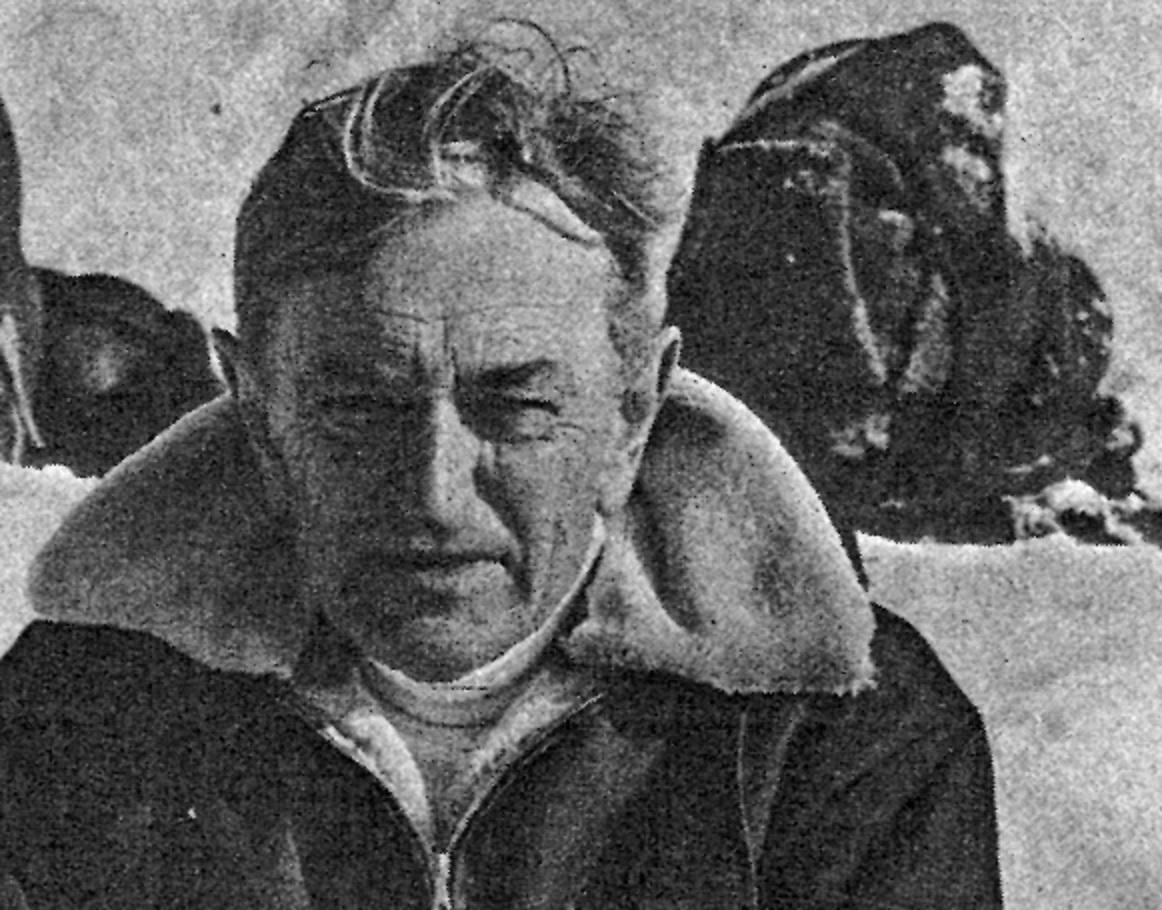 Kalervo Manninen, Wikimedia Commons
Kalervo Manninen, Wikimedia Commons
8. He Couldn’t Fake It
One struggle Guinness had on his first film was something very simple. He couldn’t laugh on cue—at least not believably. To get the best performance, Lean pulled a clever stunt. He secretly signaled the crew to roll the cameras and told Guinness something funny. Guinness laughed and Lean called “cut”.
Maybe Guinness couldn’t fake an authentic laugh. One thing he could fake was his marriage.
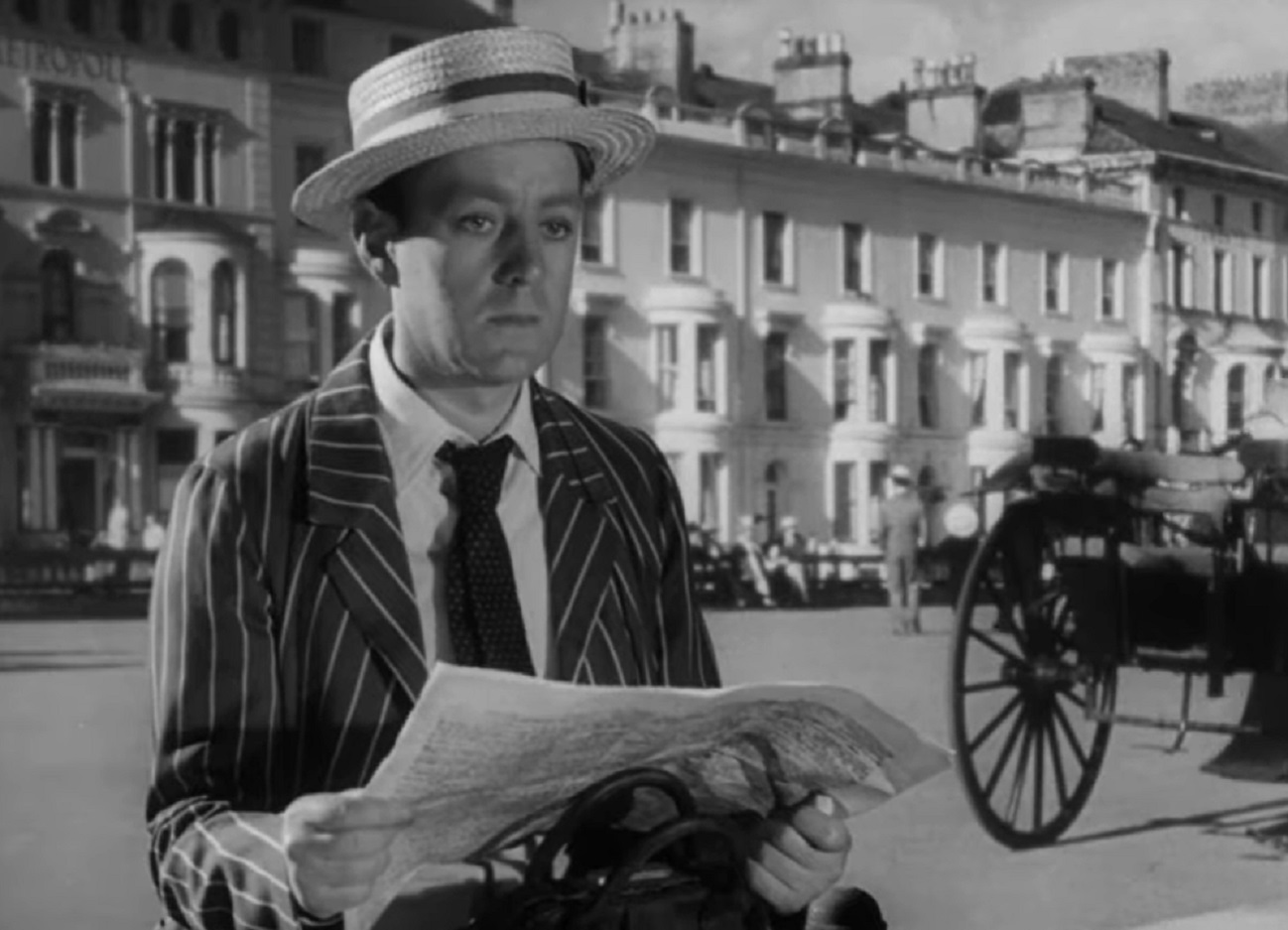 Ronald Neame Production, The Promoter (1952)
Ronald Neame Production, The Promoter (1952)
9. He Had A Secret
From the outside, Guinness’ personal life seemed rather simple. He only married once, and it looked like it was a happy union. The truth was something different. One biographer states that Guinness was secretly attracted to both women and men. Guinness was able to keep things secret, until authorities caught him—quite literally—with his pants down. 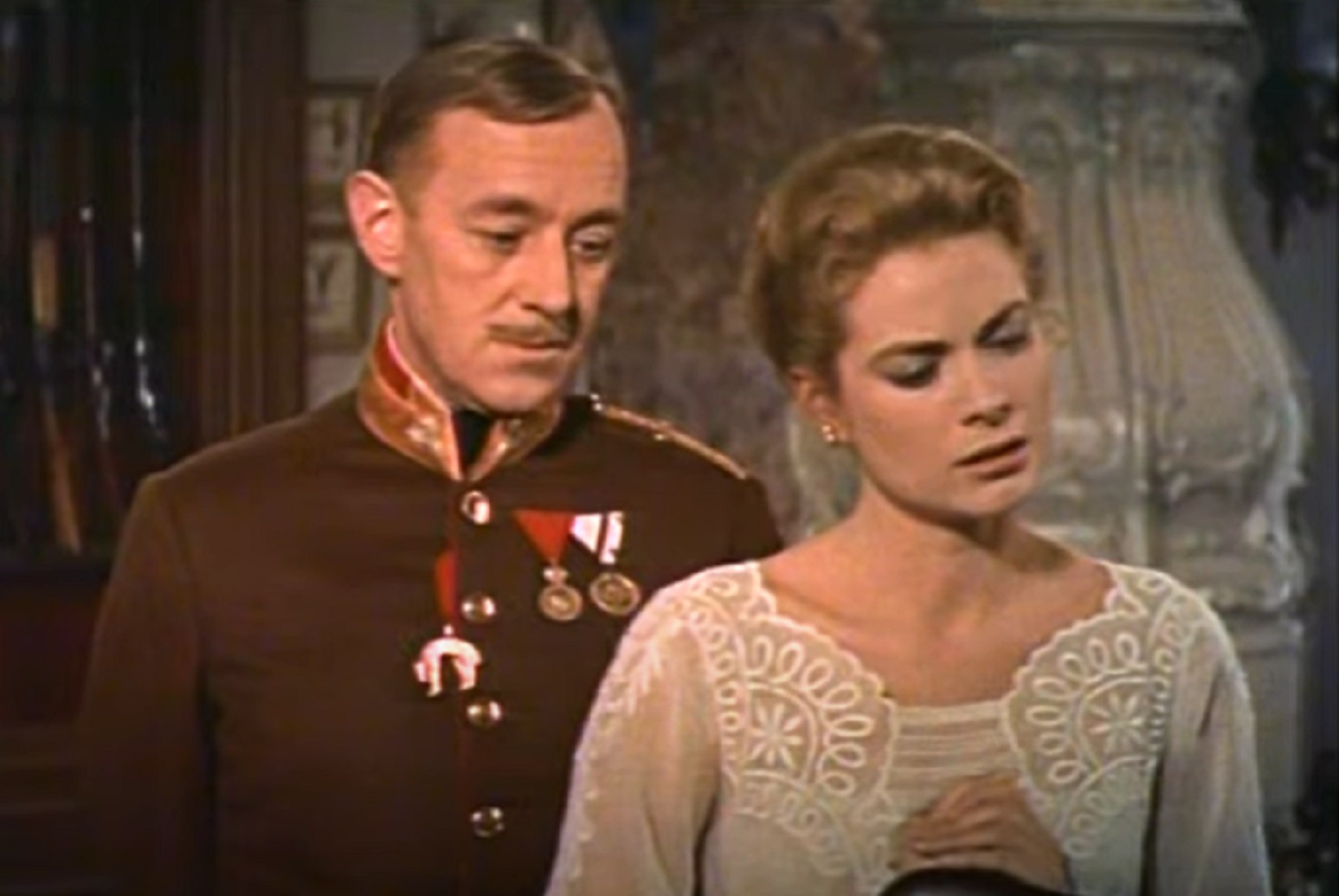 Mgm, The Swan (1956)
Mgm, The Swan (1956)
10. He Had An Encounter
One biographer says that in 1946 authorities fined Guinness for having a gay encounter in a public washroom. Guinness’ kept this out of the papers using his quick wit. Instead of giving his real name to the officers, he told them he was Herbert Pocket—his character from Great Expectations. Guinness’ secret was safe and he wanted to dive back into another film with David Lean.
Unfortunately for him, he’d had to fight tooth and nail to work with him.
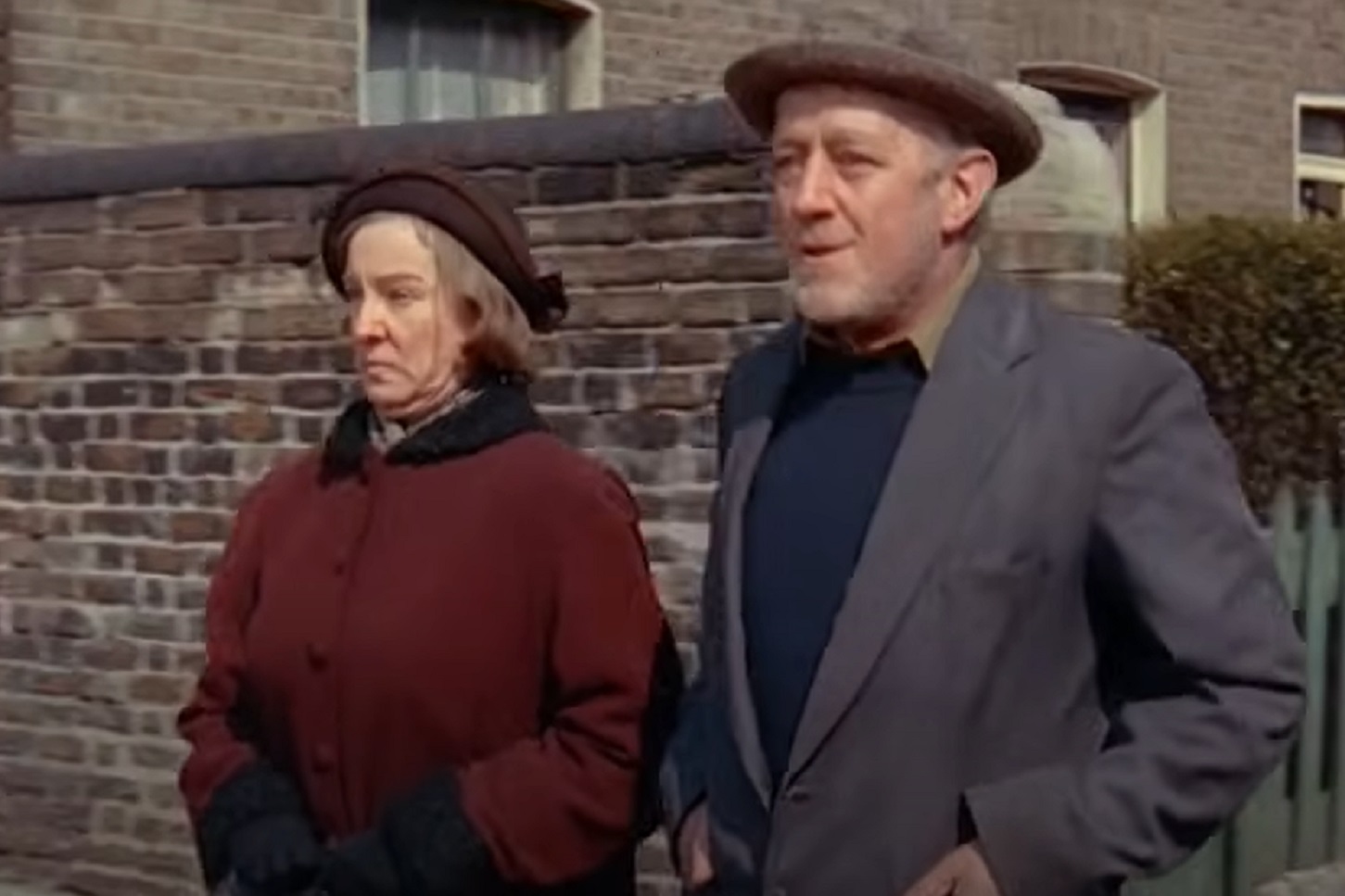 Knightsbridge Films, The Horse's Mouth (1958)
Knightsbridge Films, The Horse's Mouth (1958)

History's most fascinating stories and darkest secrets, delivered to your inbox daily.
11. He Got In Disguise
Lean’s next project was another Dickens adaptation, Oliver Twist. The problem was that Lean saw no role suitable for Guinness. Guinness, on the other hand, thought he’d be perfect...for the leading role of Fagin. To get the role, Guinness put together his own costume and makeup, and his transformation more than convinced Lean.
Unfortunately, it was this costume and makeup that would land Guinness in big trouble.
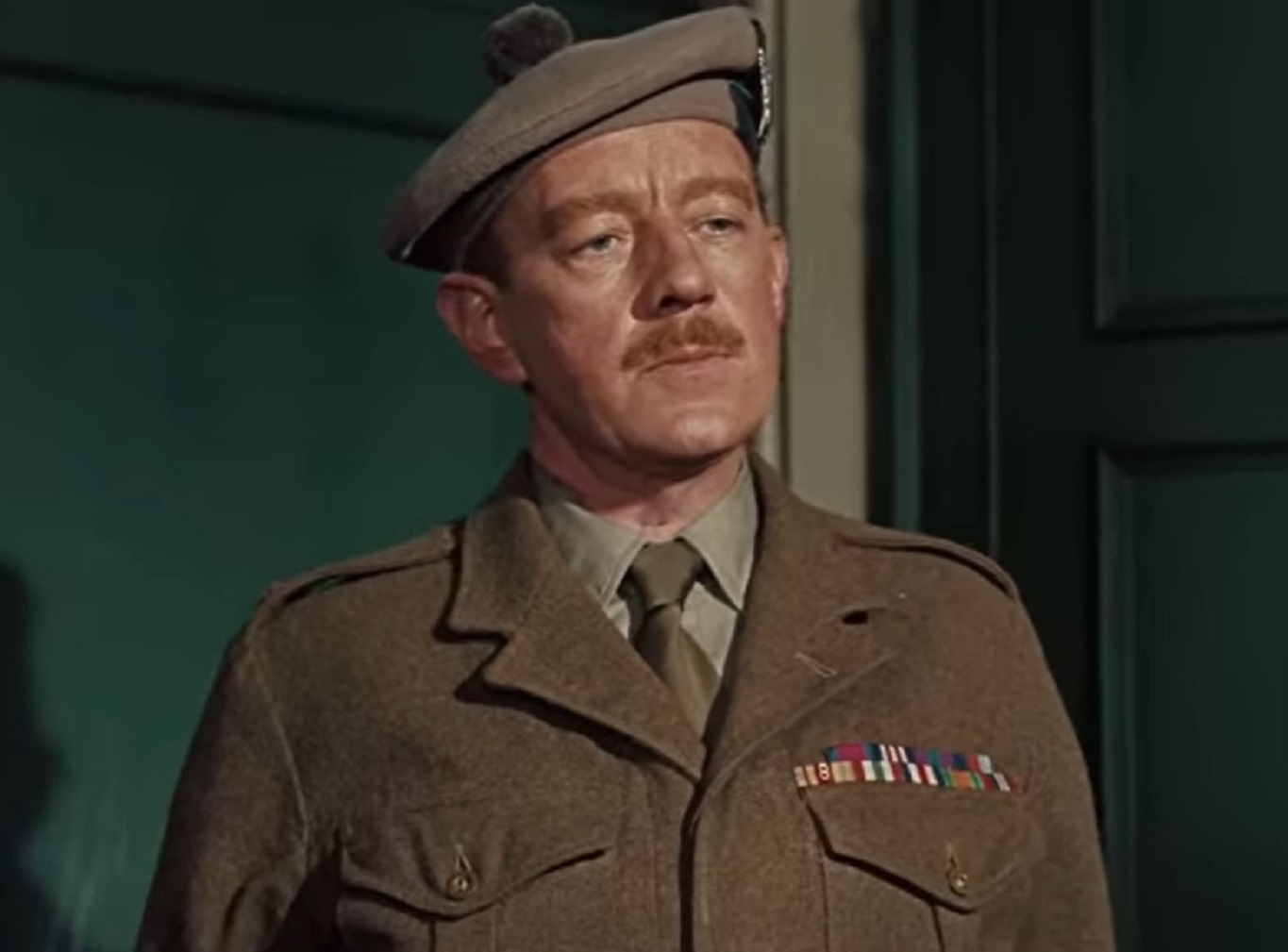 Knightsbridge Films, Tunes Of Glory (1960)
Knightsbridge Films, Tunes Of Glory (1960)
12. He Was Offensive
Guinness’ character in Oliver Twist was a man who teaches children how to be pickpockets. For his audition, Guinness made a controversial decision: He made the character stereotypically Jewish. It wasn’t in the book, but to Guinness it seemed like a good fit.
Lean loved it too—but when the film opened in London, the outrage quickly began. 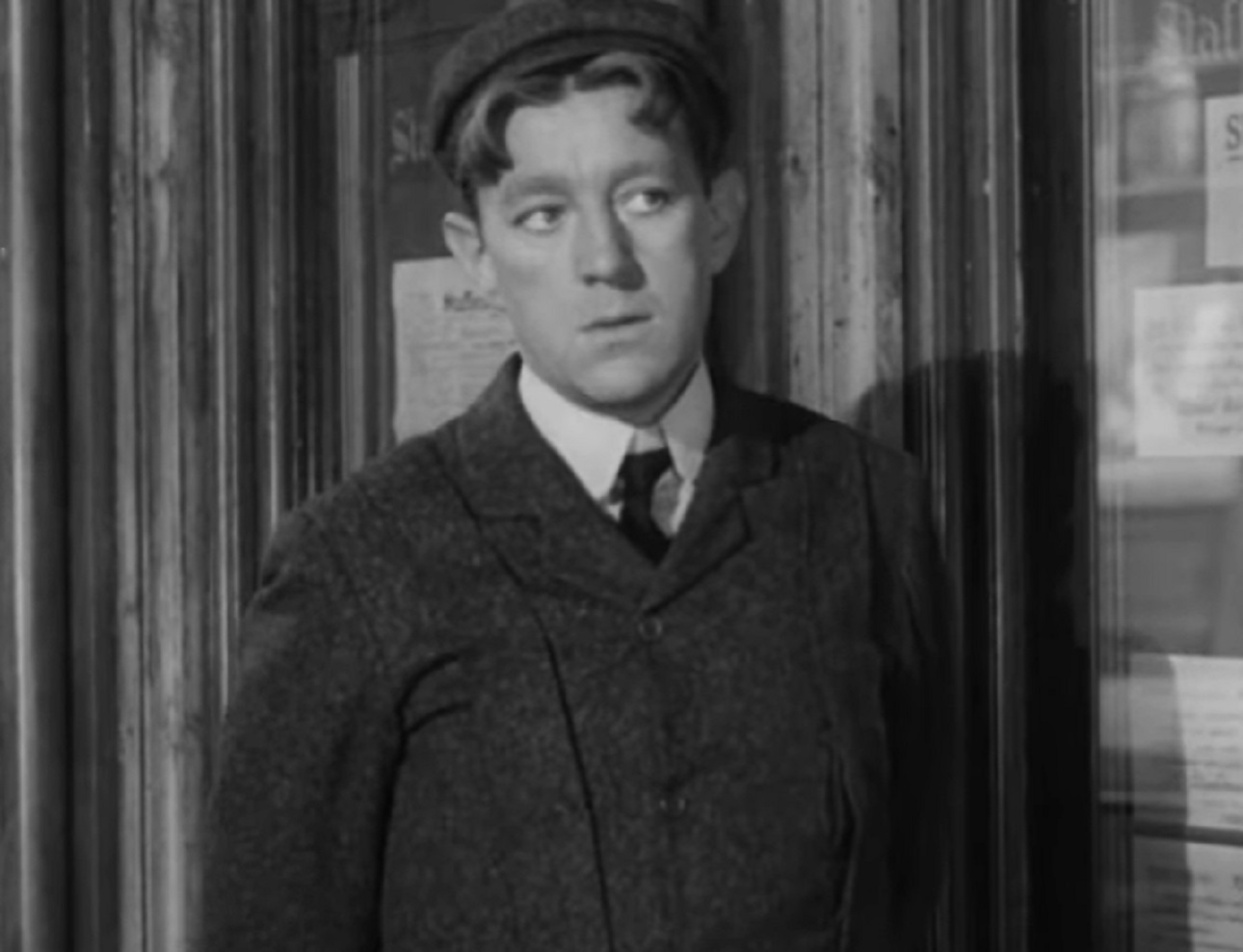 Ronald Neame Production, The Promoter (1952)
Ronald Neame Production, The Promoter (1952)
13. The Americans Didn’t Want Him
When The New York Board of Rabbis heard about Guinness’ portrayal in Oliver Twist they wanted the film banned in the US. The film was already a huge hit in the UK, and Guinness and Lean were afraid that Americans would never see it. They had to do something to get it into theaters, so they cut out 12 offensive minutes and by 1951, it got its US release.
It was now out there, and Guinness just had to wait nervously for the response. 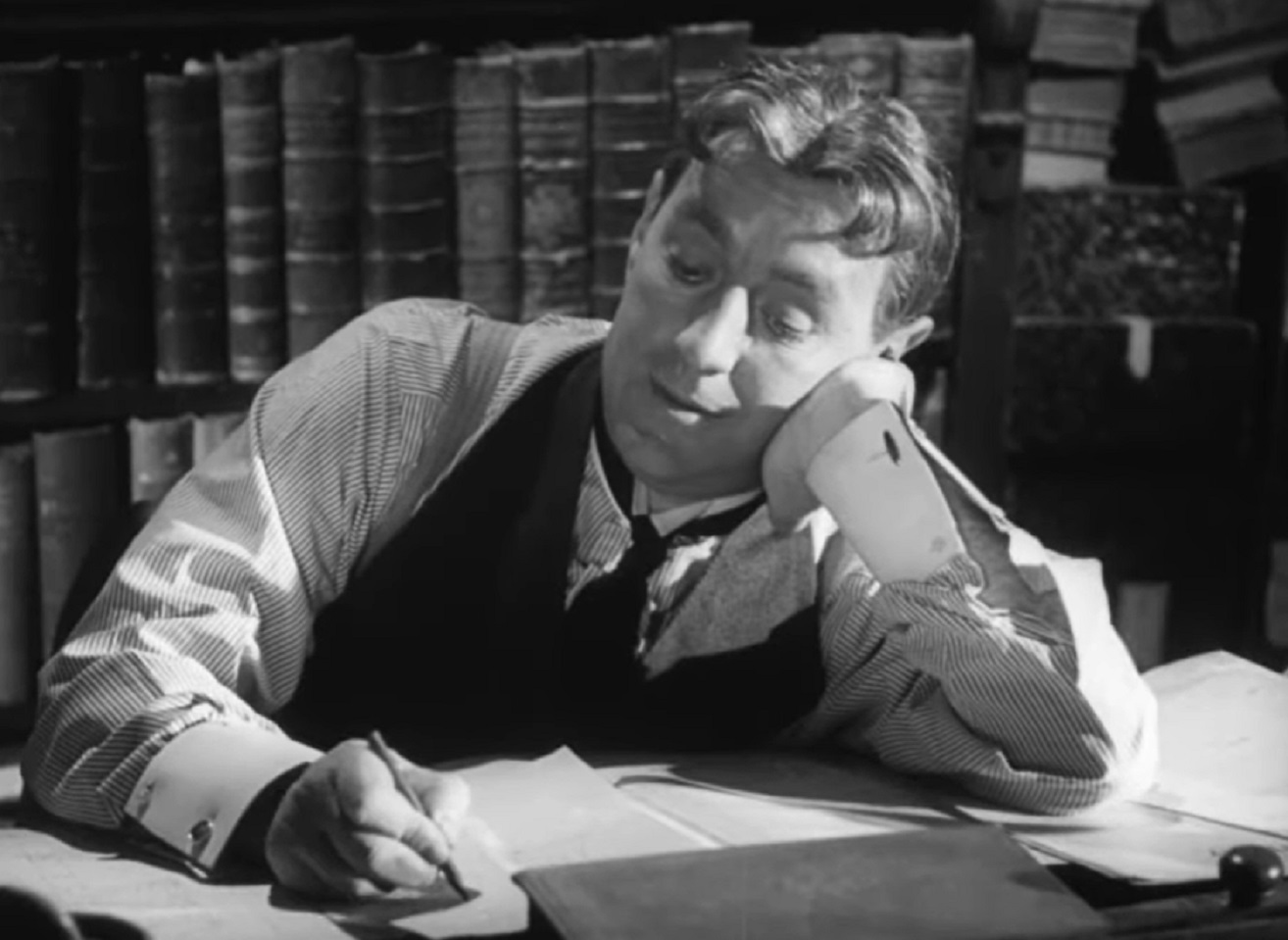 Ronald Neame Production, The Promoter (1952)
Ronald Neame Production, The Promoter (1952)
14. They Wouldn’t Vote For It
American audiences and critics loved Oliver Twist, but there were still some people who couldn’t warm up to Guinness’ portrayal. The members of the Academy flatly refused to vote for the film, and it received a ban in Israel and Egypt and met with protests in Germany.
If this wasn’t bad enough, the attacks on Oliver Twist then took a more personal turn.
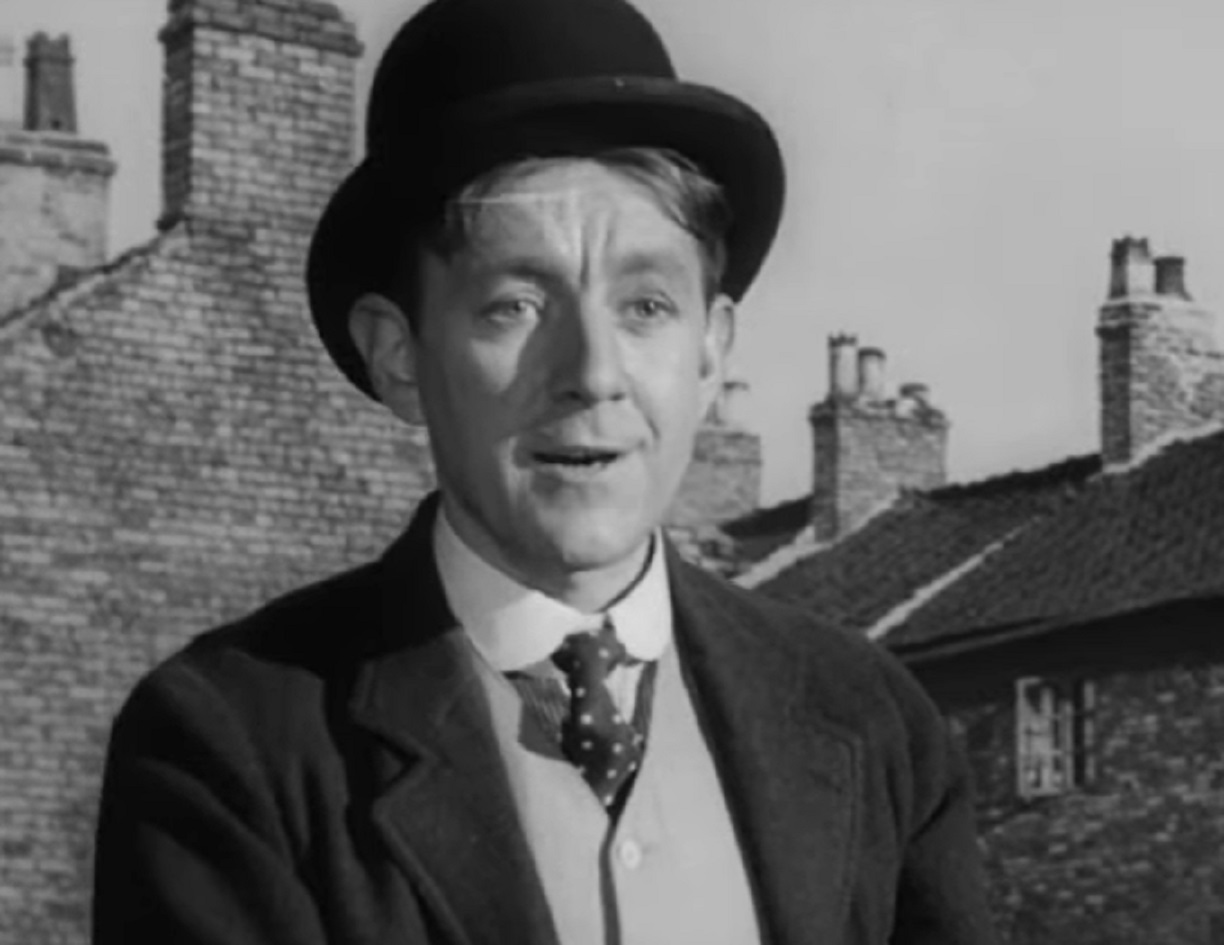 Ronald Neame Production, The Promoter (1952)
Ronald Neame Production, The Promoter (1952)
15. He Got Attacked
Guinness was at a party where producer David O Selznick was in attendance. Selznick had been more than angered by Guinness’ performance as a Jewish Fagin, so when he saw Guinness his blood began to boil. Losing control, Selznick went at the actor with his fists. Guinness survived the assault and, in an ironic twist, later received the David O Selznick Golden Laurel Award.
Thankfully, Guinness’ next role would be less controversial, but a whole lot wackier. 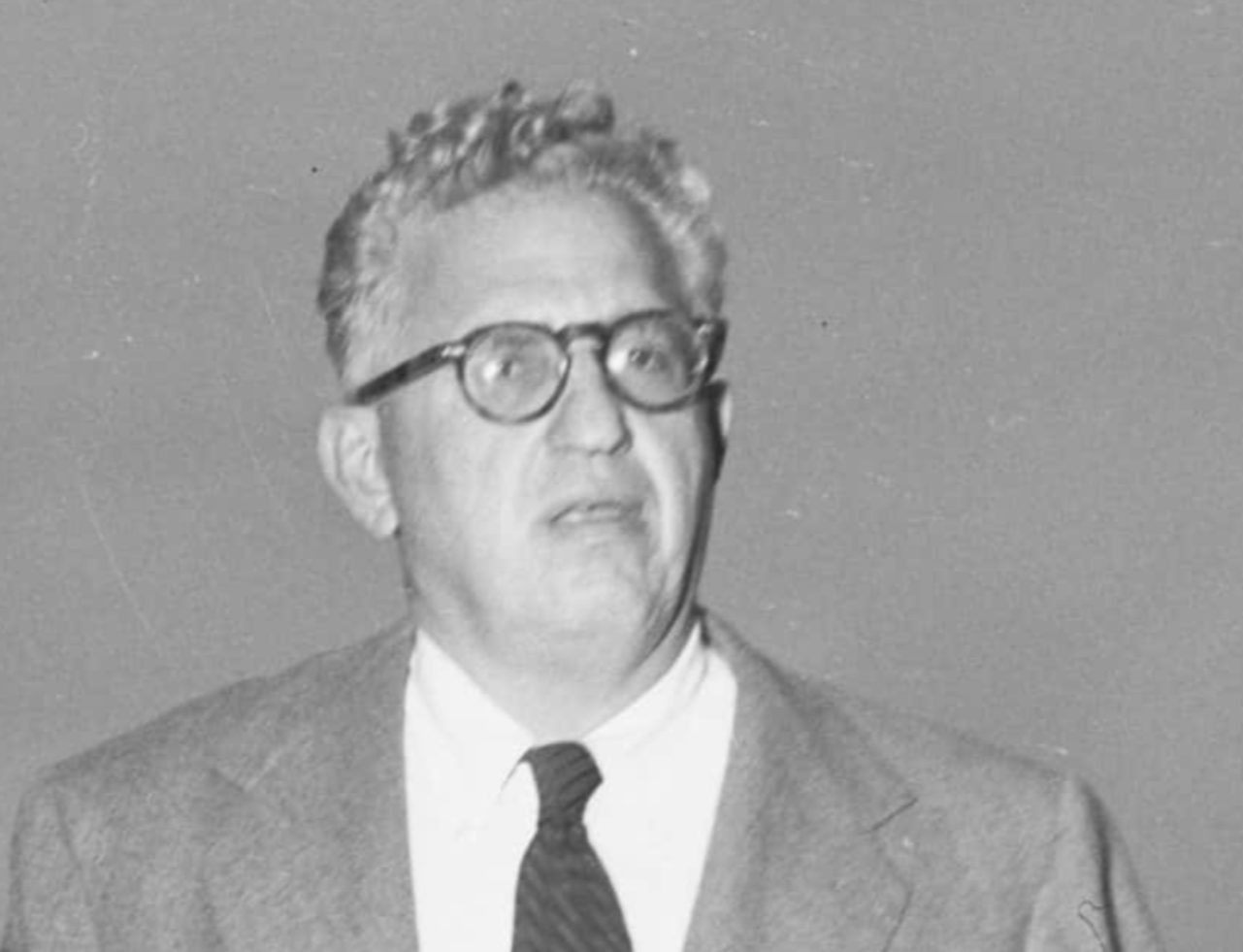 University of Southern California, Getty Images
University of Southern California, Getty Images
16. He Made An Outlandish Demand
Guinness’ next film was 1949’s black comedy Kind Hearts and Coronets, about a man bent on destroying entire family. The director thought he could get more laughs if Guinness played four of the eight family members. Guinness loved the script, but immediately made a wild demand. He didn’t want to play four members. He wanted to play the entire family.
Guinness got the green light, but immediately ran into danger.
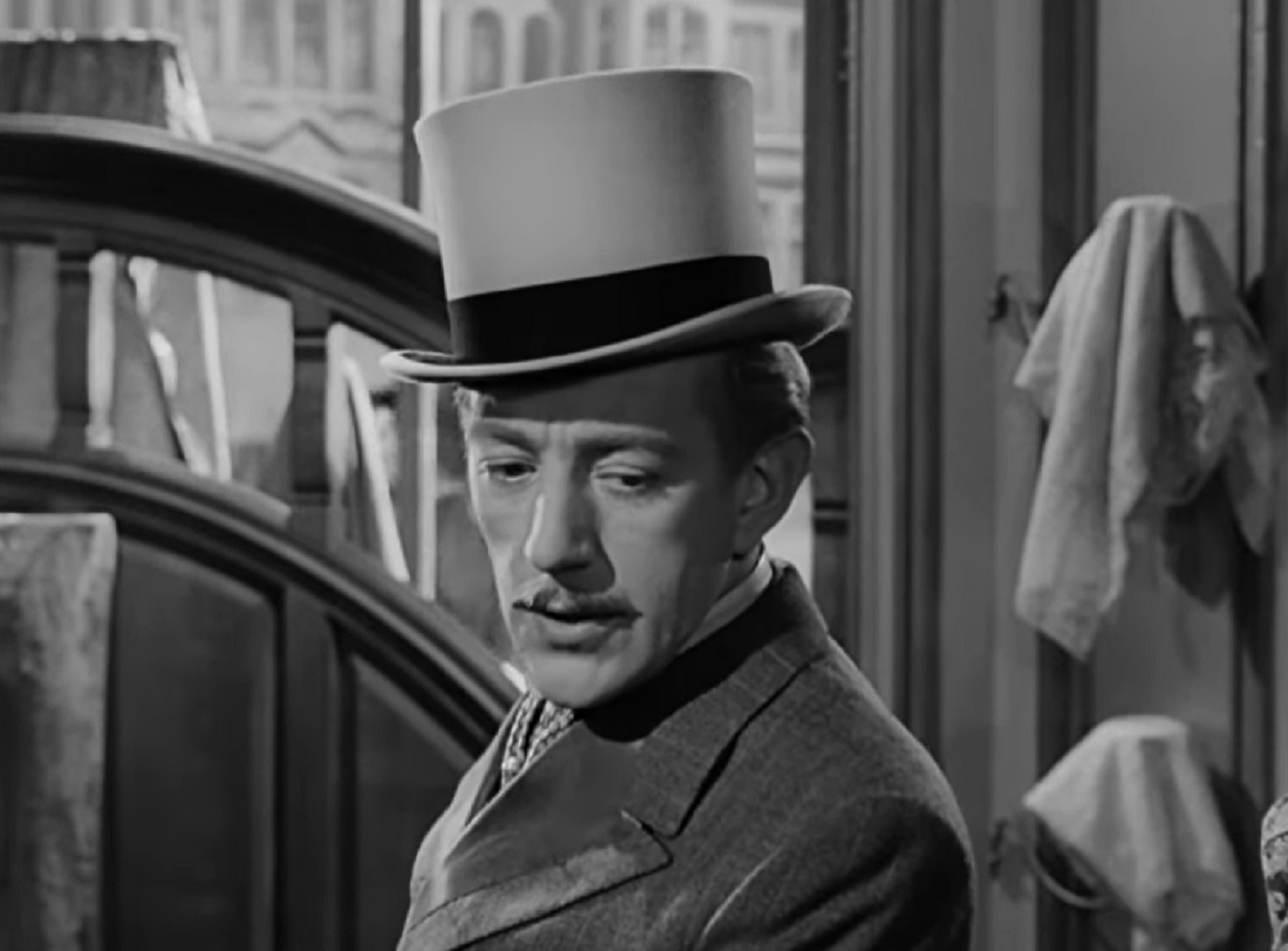 Ealing Studios, Kind Hearts And Coronets (1949)
Ealing Studios, Kind Hearts And Coronets (1949)
17. He Refused To Get On Board
In Kind Hearts and Coronets, one of the family members suffers a fatal hot air balloon accident. Guinness took one look at the balloon and asked about insurance. The producers assured Guinness that they had enough coverage, but Guinness refused to get in the balloon until they got more.
As it turned out, Guinness couldn’t have been more right. 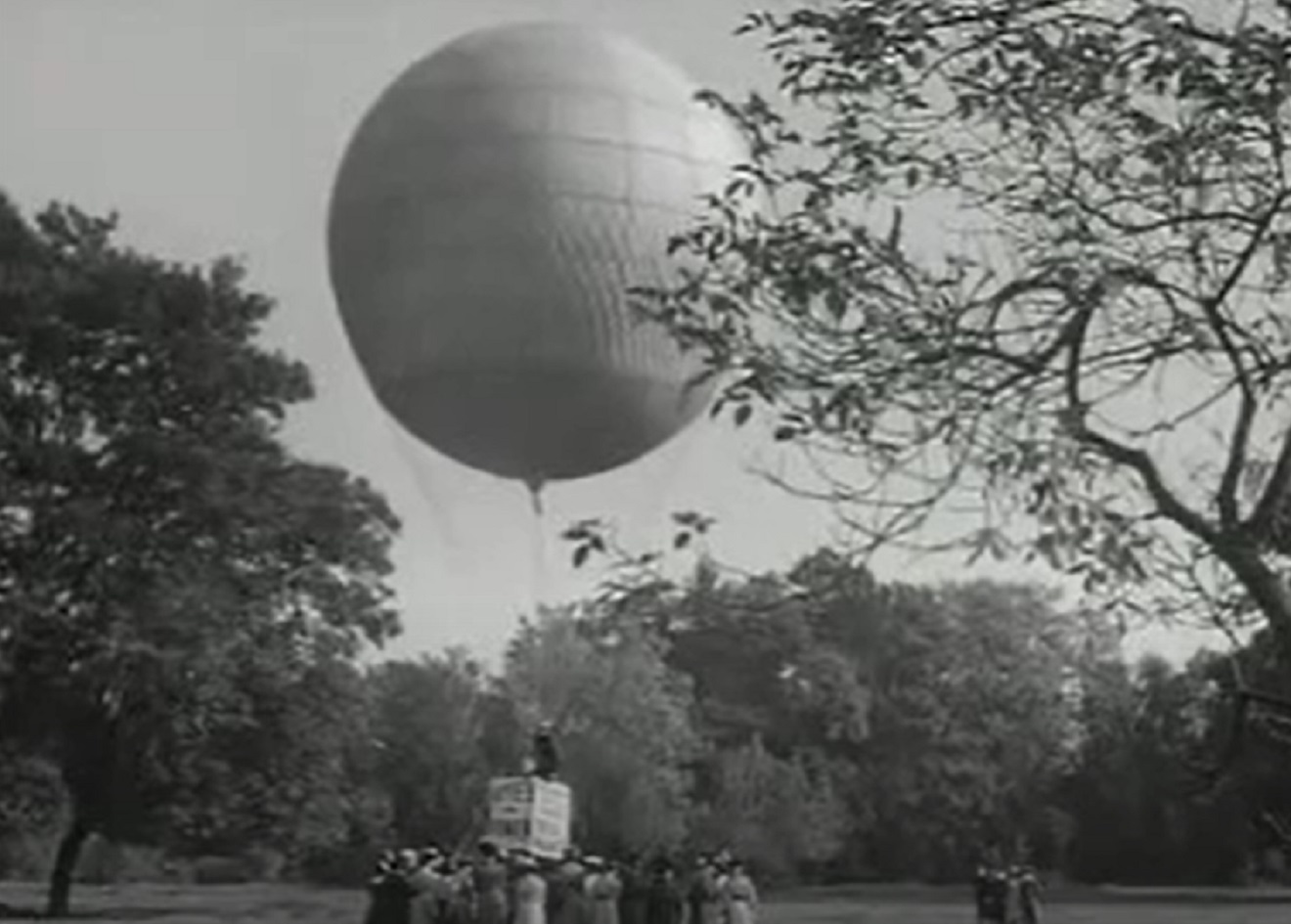 Ealing Studios, Kind Hearts And Coronets (1949)
Ealing Studios, Kind Hearts And Coronets (1949)
18. He Had The Last Laugh
The producers of Kind Hearts and Coronets would not increase the insurance coverage, so they replaced Guinness in the balloon with an expert balloonist. It didn't prevent disaster. The balloon went off course, and the so-called expert had to save himself by jumping into a river.
I’m sure Guinness had a good laugh, but the dangers of this film were far from over. 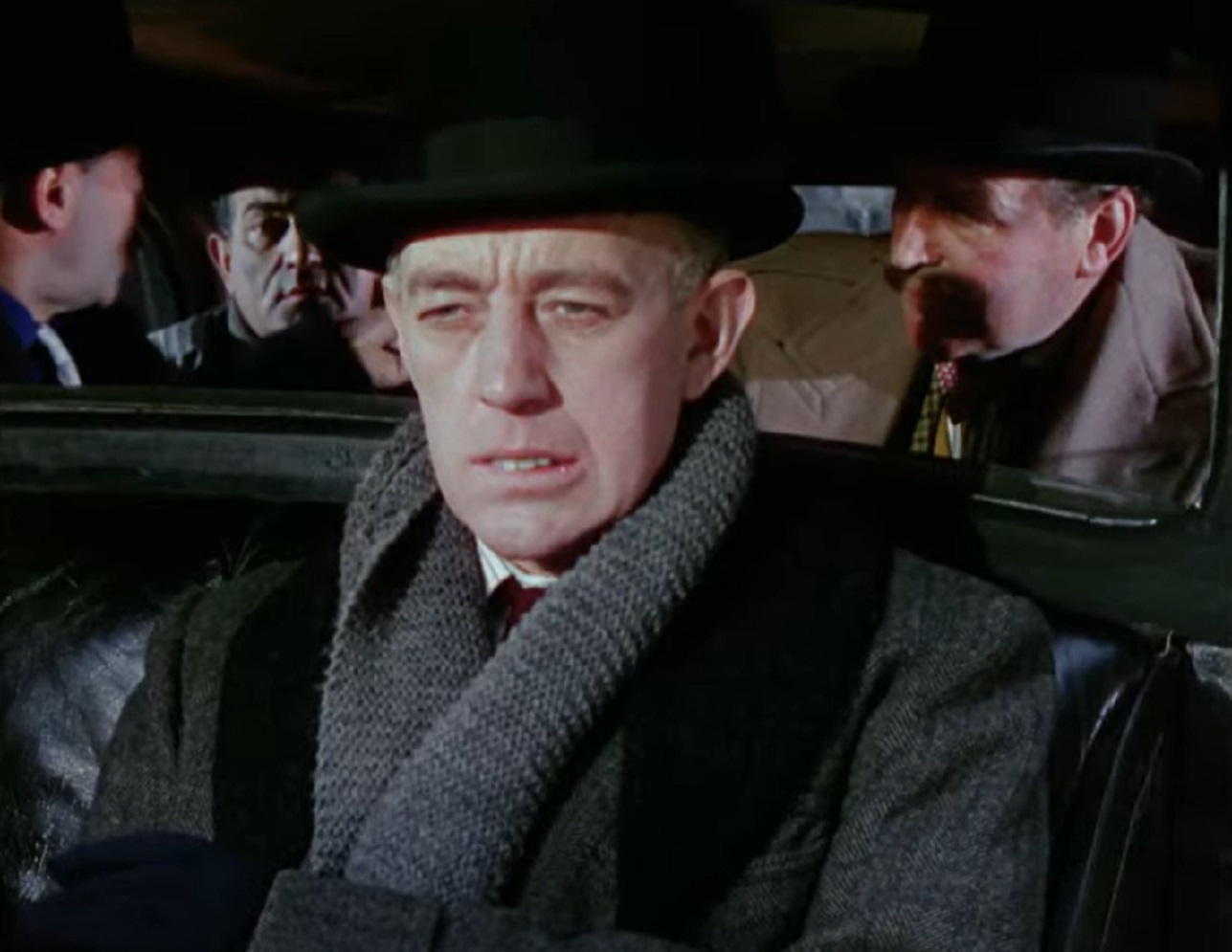 Ealing Studios, The Ladykillers (1955)
Ealing Studios, The Ladykillers (1955)
19. He Was Under Water
Another scene in Kind Hearts and Coronets took place on a sinking ship. The crew had to physically wire Guinness to the set to get the shot where he went down with the ship, with the water slowly rising over his head. But it almost went terribly wrong.
When they finally got the shot they wanted, the crew quickly left the set. The last crew member was about to leave when he noticed something was off. No one had bothered to unhitch Guinness. Guinness was still over his head in water and had no way to get free. 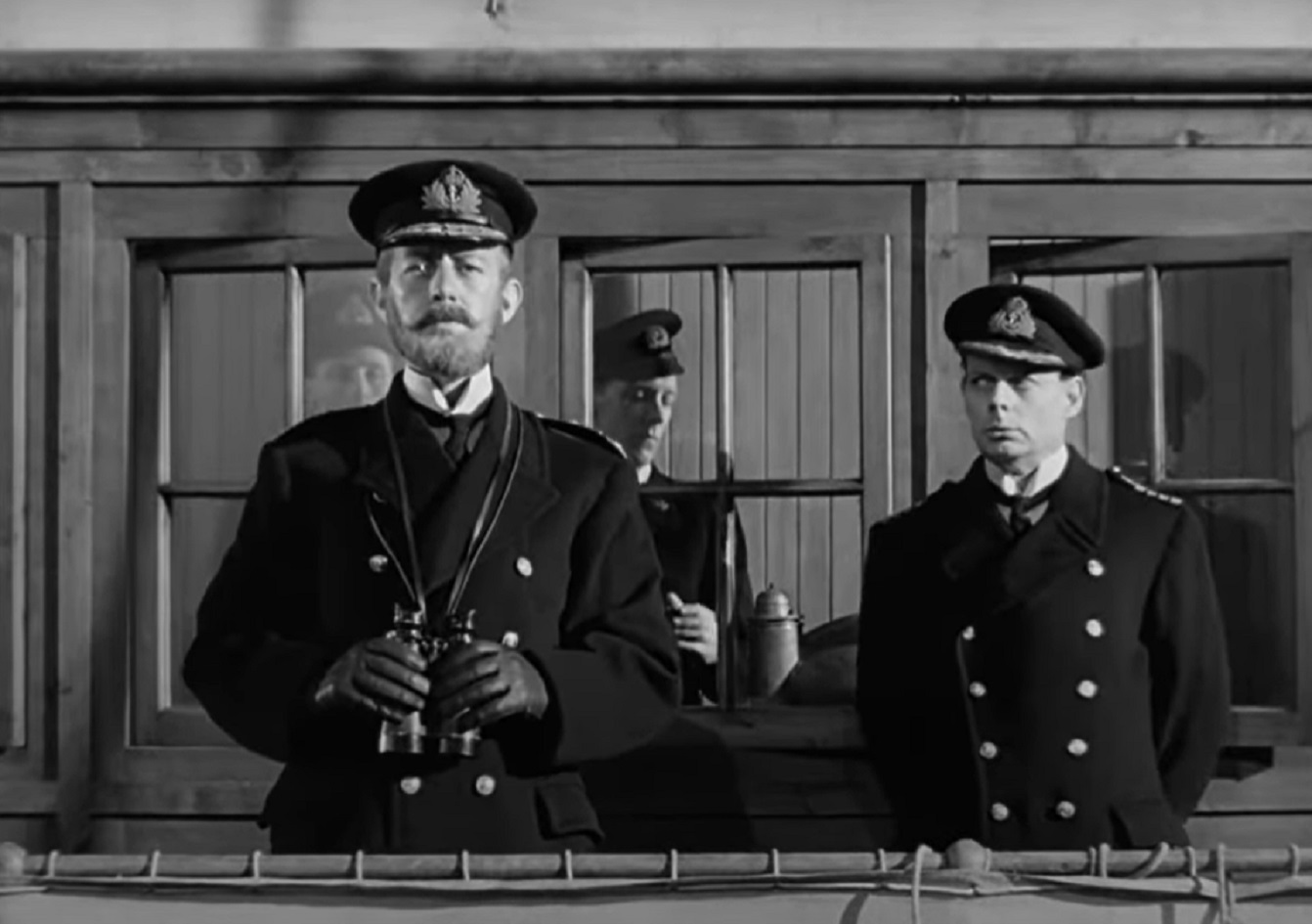 Ealing Studios, Kind Hearts And Coronets (1949)
Ealing Studios, Kind Hearts And Coronets (1949)
20. He Almost Drowned
The crew member who noticed that Guinness was in danger grabbed a pair of wire cutters and dove into the tank. In a scene right from an action movie, the crew member desperately cut the wires and saved Guinness’ life. What the crew didn’t know was that Guinness had a track record of holding his breath for long periods of time. Lucky for him.
Guinness survived this near drowning, but this next scene would stretch his talents to the limit.
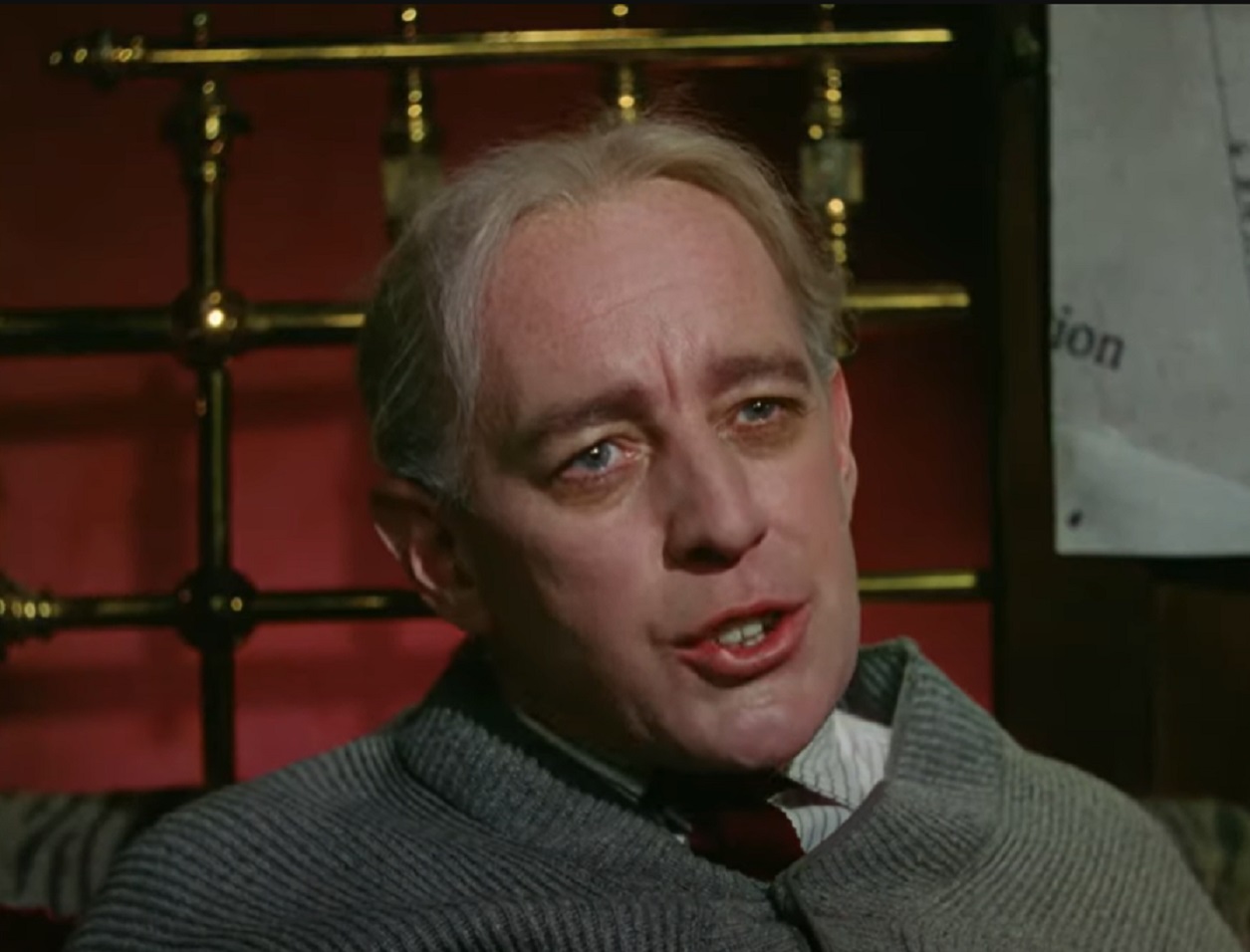 Ealing Studios, The Ladykillers (1955)
Ealing Studios, The Ladykillers (1955)
21. He Imagined The Worst
During the filming of Kind Hearts and Coronets, Guinness eventually had to play six of his characters in the same scene. Guinness was constantly in and out of costume and makeup, but that wasn’t even the hardest part. He lost sleep worried that doing this scene might make him forget who he was.
If Guinness wanted to worry about something, he could worry about one line in this film that was just plain eerie.
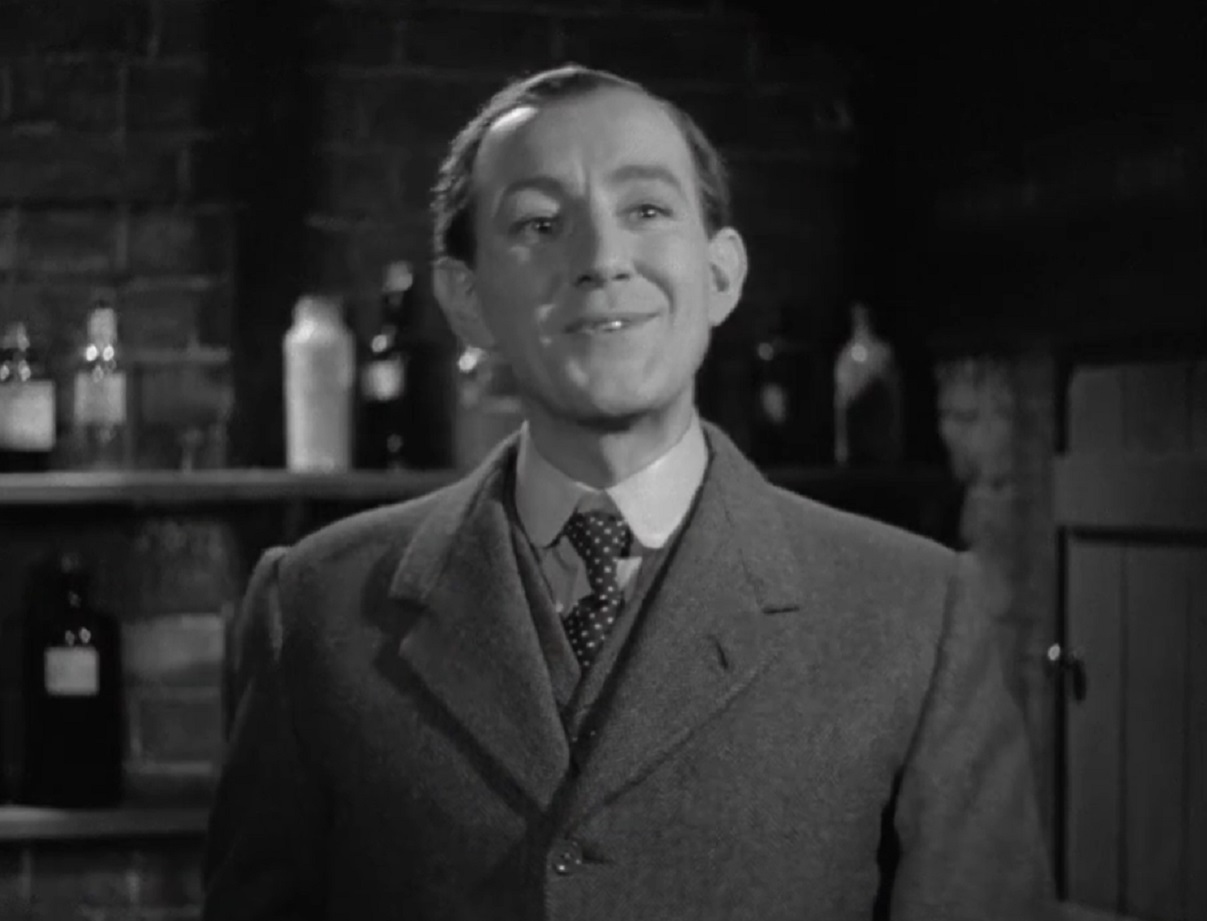 Ealing Studios, Kind Hearts And Coronets (1949)
Ealing Studios, Kind Hearts And Coronets (1949)
22. He Said Some Ominous Words
One of Guinness’ lines in Kind Hearts and Coronets has a rather uncanny ring to it. While playing a priest, his character says: “My Lord, the port is with you,” referring to wine. If Guinness felt a shiver run down his spine, he wouldn't understand why for decades, until he said a very similar line in a movie he hated: “May the force be with you”.
In his next film, Guinness would wish he had some kind of force with him. He’d need it for his own safety.
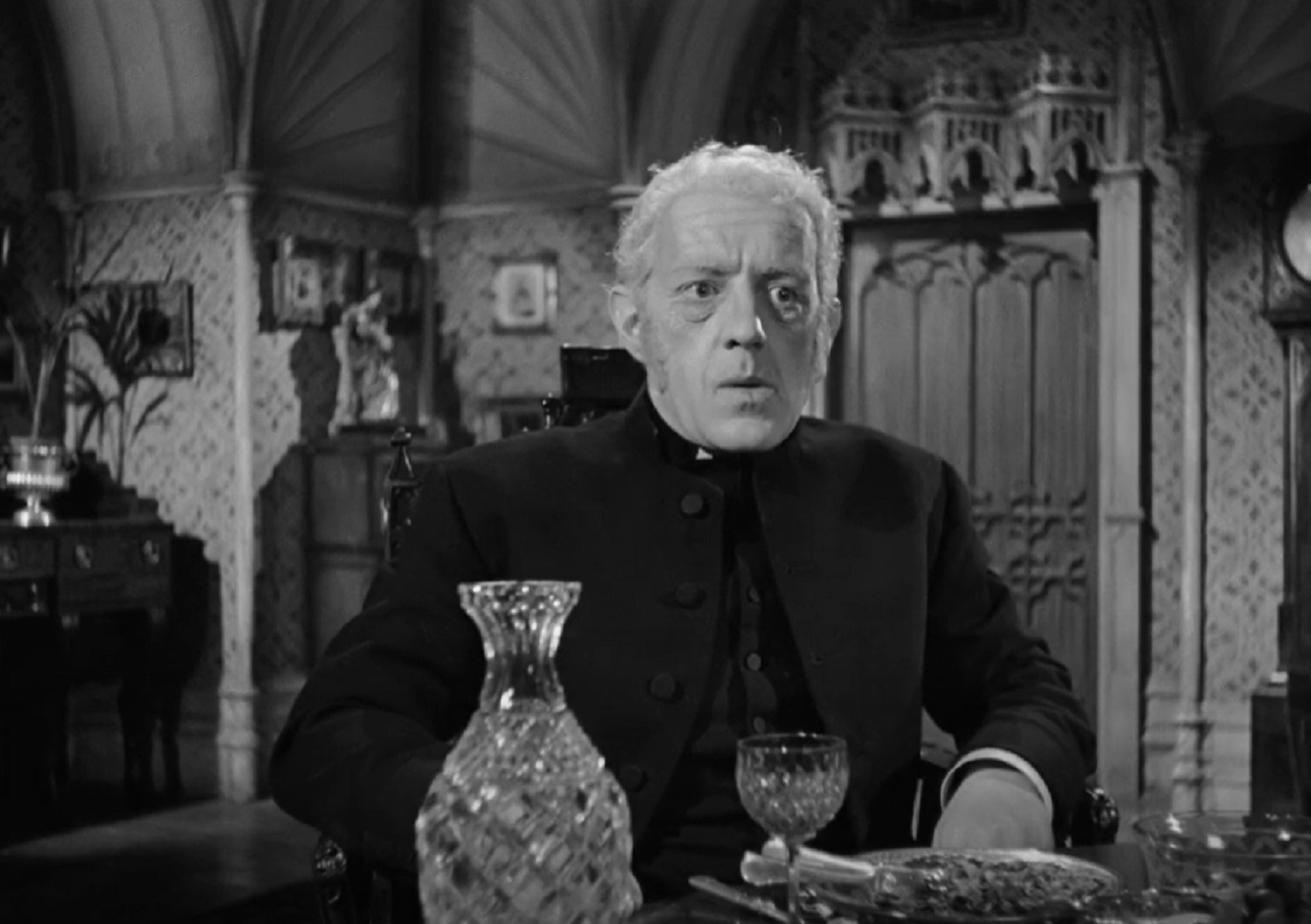 Ealing Studios, Kind Hearts And Coronets (1949)
Ealing Studios, Kind Hearts And Coronets (1949)
23. He Nearly Fell From A Tower
The Lavender Hill Mob was a heist comedy that had Guinness making tiny Eiffel Tower toys out of real gold for a shady scheme. Guinness took a sizeable pay cut to make this film—and according to legend, it ended up almost costing him his life. While filming one scene, he and his co-star almost fell off the actual Eiffel Tower.
Luckily Guinness’ next film was injury free, but it did cause him to lose himself completely.
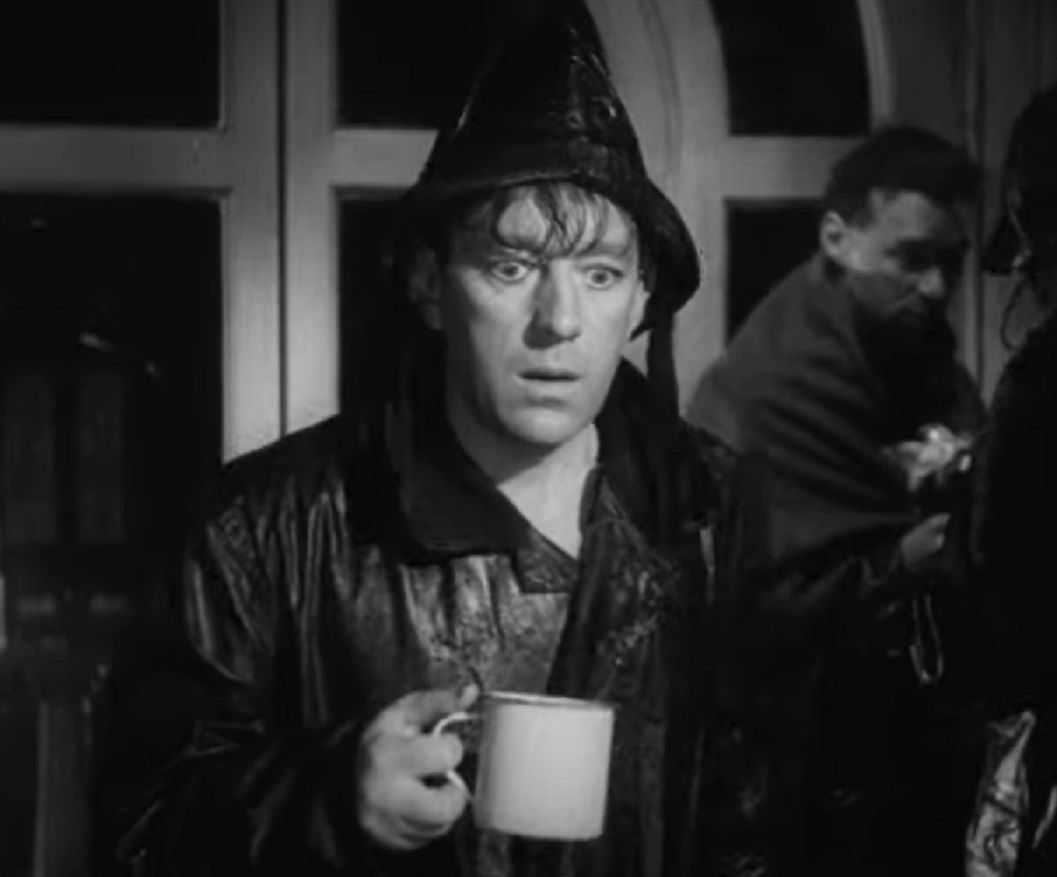 Ronald Neame Production, The Promoter (1952)
Ronald Neame Production, The Promoter (1952)
24. He Copied His Every Move
Guinness wasn’t the first choice for the role in his next film. For The Ladykillers, the writer had Alastair Sim—Scrooge in the 1951 A Christmas Carol—in mind. When Guinness found this out, he did something bizarre. He perfectly copied Sim’s mannerisms and even his appearance. You could say the director got his first choice anyway.
Maybe Guinness wasn’t the first choice for the director, but for his creepy costar, he was all that and a bag of chips. 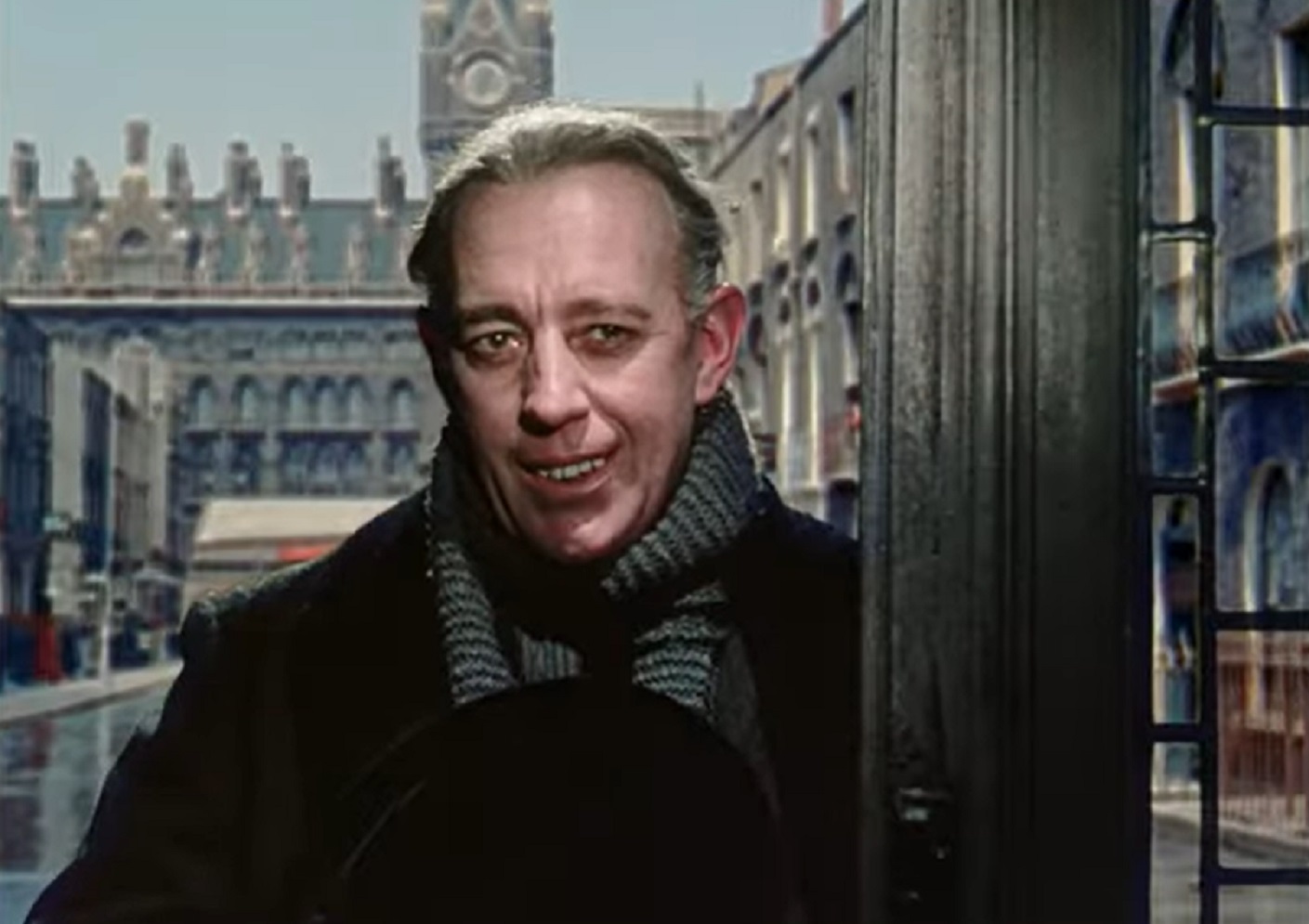 Ealing Studios, The Ladykillers (1955)
Ealing Studios, The Ladykillers (1955)
25. He Was The Object Of An Infatuation
When on set, Guinness likely noticed that one of his co-stars was creepily watching his every move. Little did Guinness know, but newcomer Peter Sellers worshiped him, and was hoping to learn by watching his idol’s acting style. The future Pink Panther portrayer couldn’t keep his obsession with Guinness to himself, and it came out in a hilarious way. 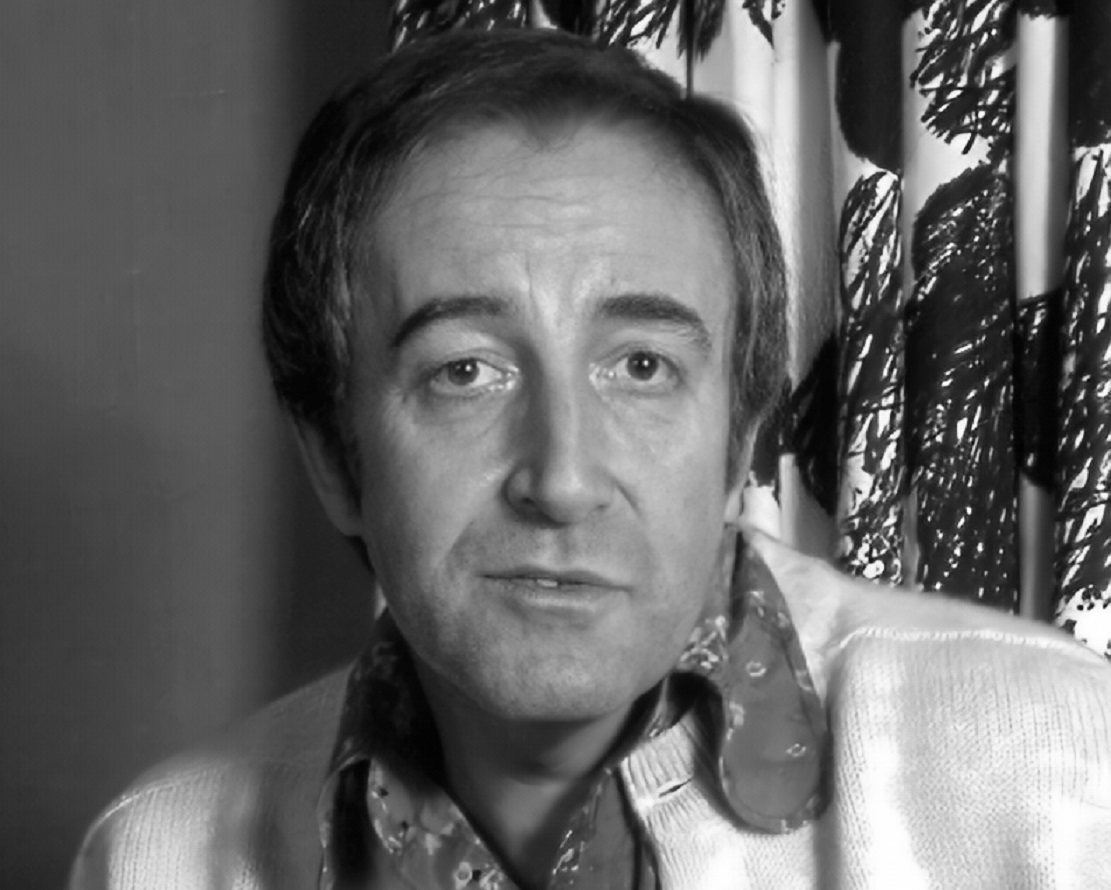 Allan warren, CC BY-SA 3.0, Wikimedia Commons
Allan warren, CC BY-SA 3.0, Wikimedia Commons
26. It Squawked His Name
In The Ladykillers, one character has a collection of talking birds, and the director got Guinness’ co-star Sellers to perform the voices. Well, Sellers decided to have a little fun. As one of the birds flies around the house, you can hear something that makes little sense to the film. One of the birds very clearly screeches “Alec Guinness”.
Squawking birds were all fun and games, but what happened next had catastrophe written all over it.
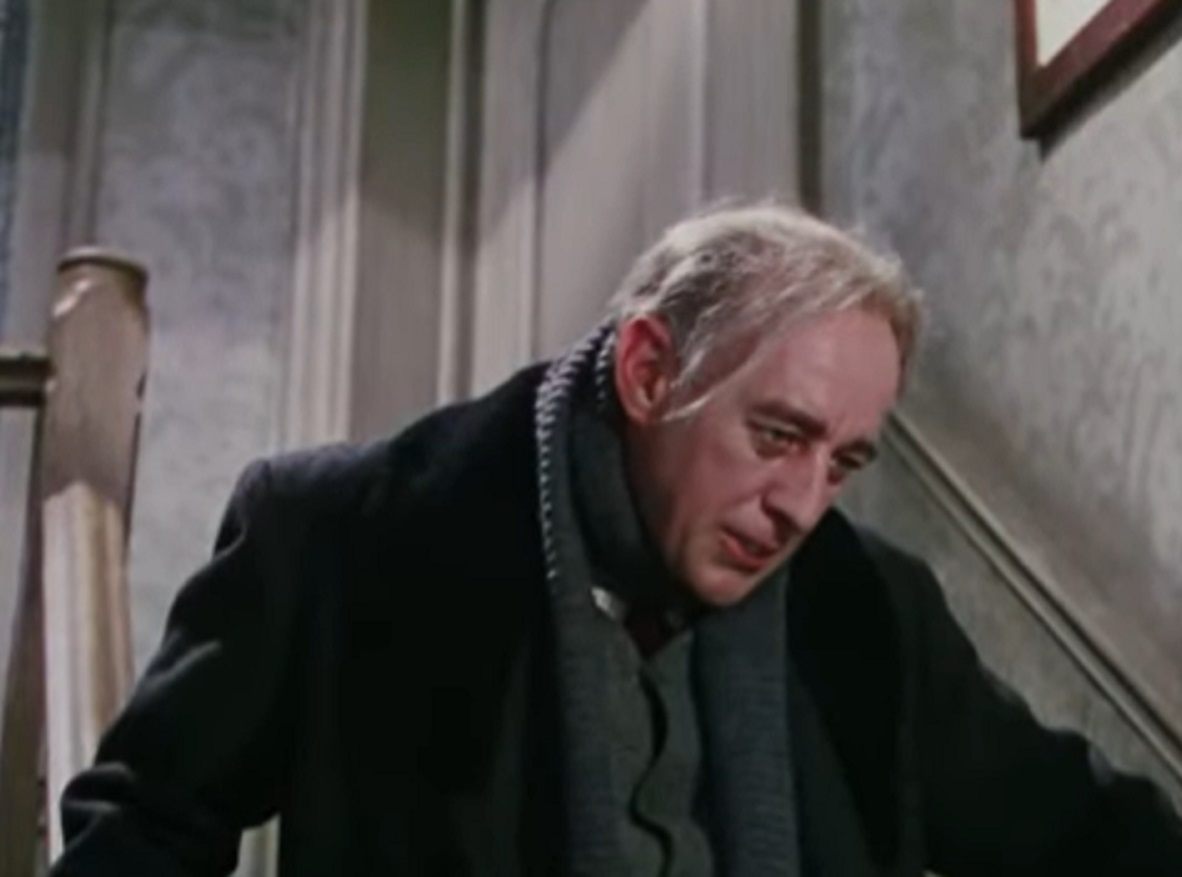 Ealing Studios, The Ladykillers (1955)
Ealing Studios, The Ladykillers (1955)
27. He Saw A Tragic Future
In 1956, Guinness was on the set of the romantic comedy The Swan when James Dean popped in for a visit. Dean was showing off the Porsche he’d just purchased, and Guinness suddenly had a premonition of a terrible crash. He told Dean about his vision, but the Rebel Without a Cause actor didn’t take it seriously. Tragically, Dean lost his life in a car crash less than a year later.
Guinness should have used his gift for seeing the future on this next film. He could have saved himself a world of pain. 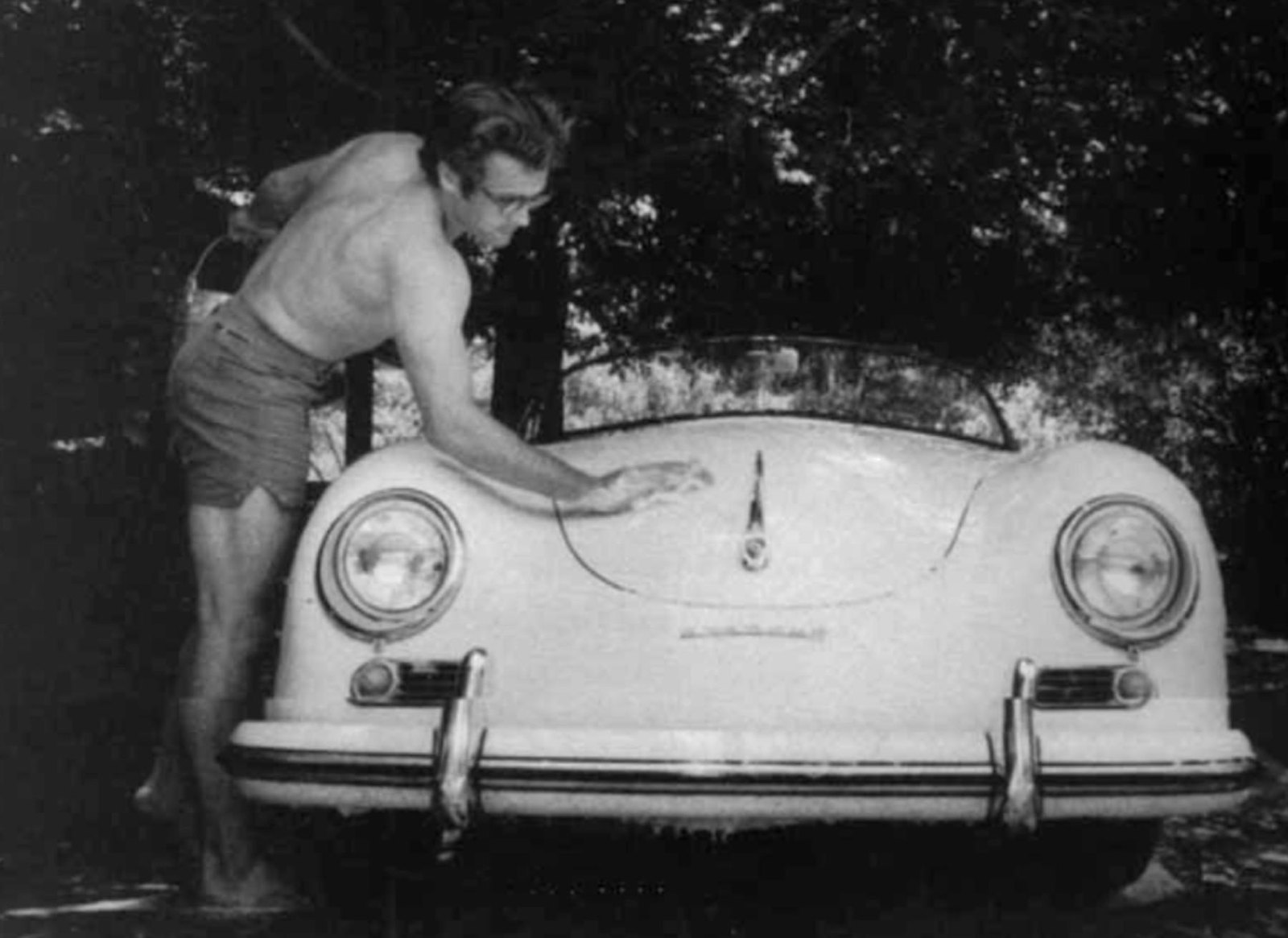 John Irving, Flickr
John Irving, Flickr
28. He Tried To Sneak Them In
Guinness' next role was big on drama, and he had a vision that audiences wouldn’t like him playing it completely straight. He worked again with David Lean, this time on The Bridge On the River Kwai, Guinness found his role a little...dull. He tried to sneak in some comedic elements, and Lean hated it.
He was sure Guinness was sabotaging what could be his finest role ever—and he had to go out on a limb to convince him.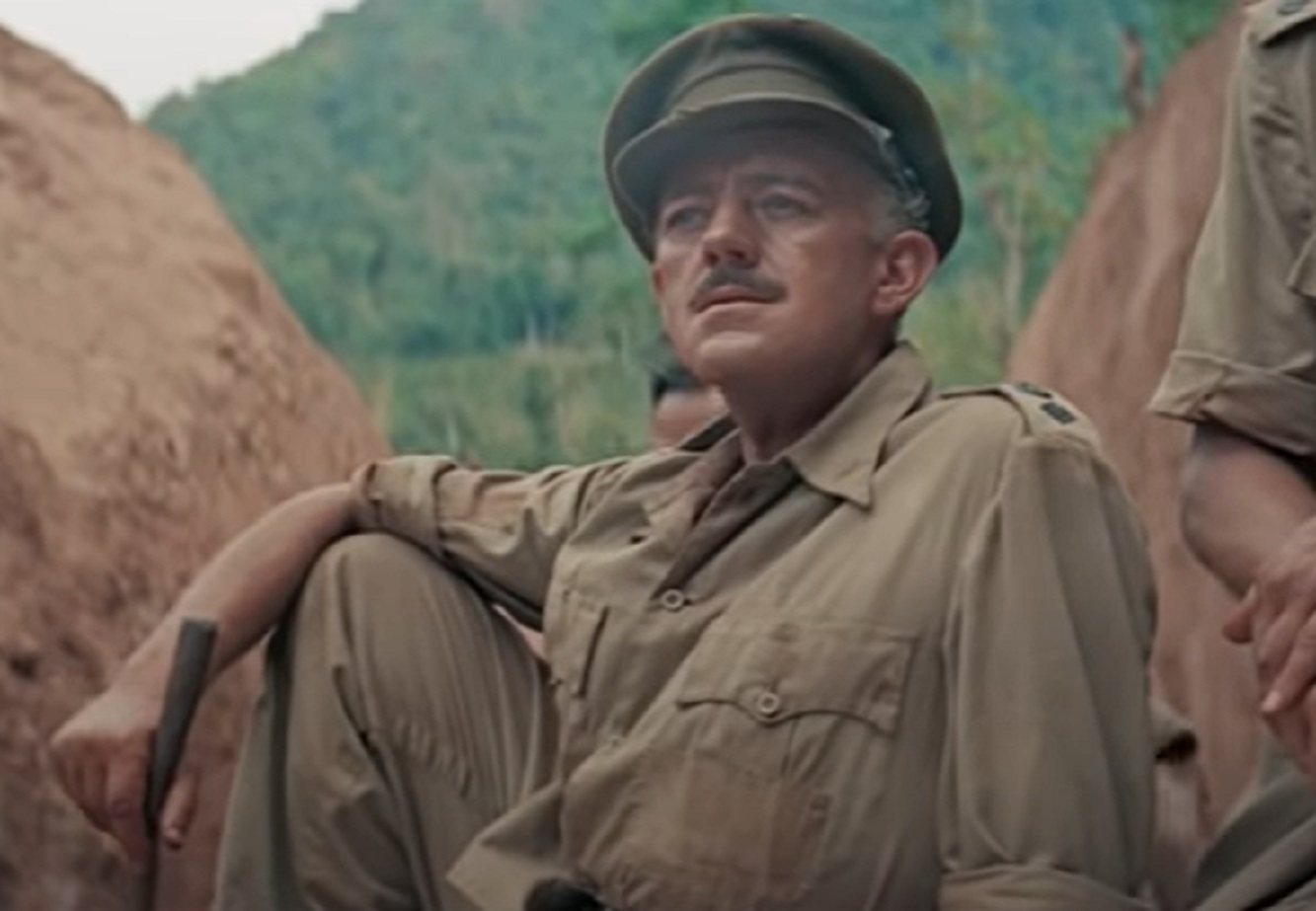 Horizon Pictures, The Bridge on the River Kwai (1957)
Horizon Pictures, The Bridge on the River Kwai (1957)
29. He Walked Out
To convince Guinness that playing it straight was the best thing for The Bridge on the River Kwai, Lean cleverly decided to show Guinness some the scenes they'd shot where he played it straight. But after the screening, Guinness left the room without a word, so Lean thought his plan had failed miserably.
To his surprise, Guinness came back and told the director that it was the best acting he’d ever done. Guinness was ready to fully commit to the film—even when things got nasty.
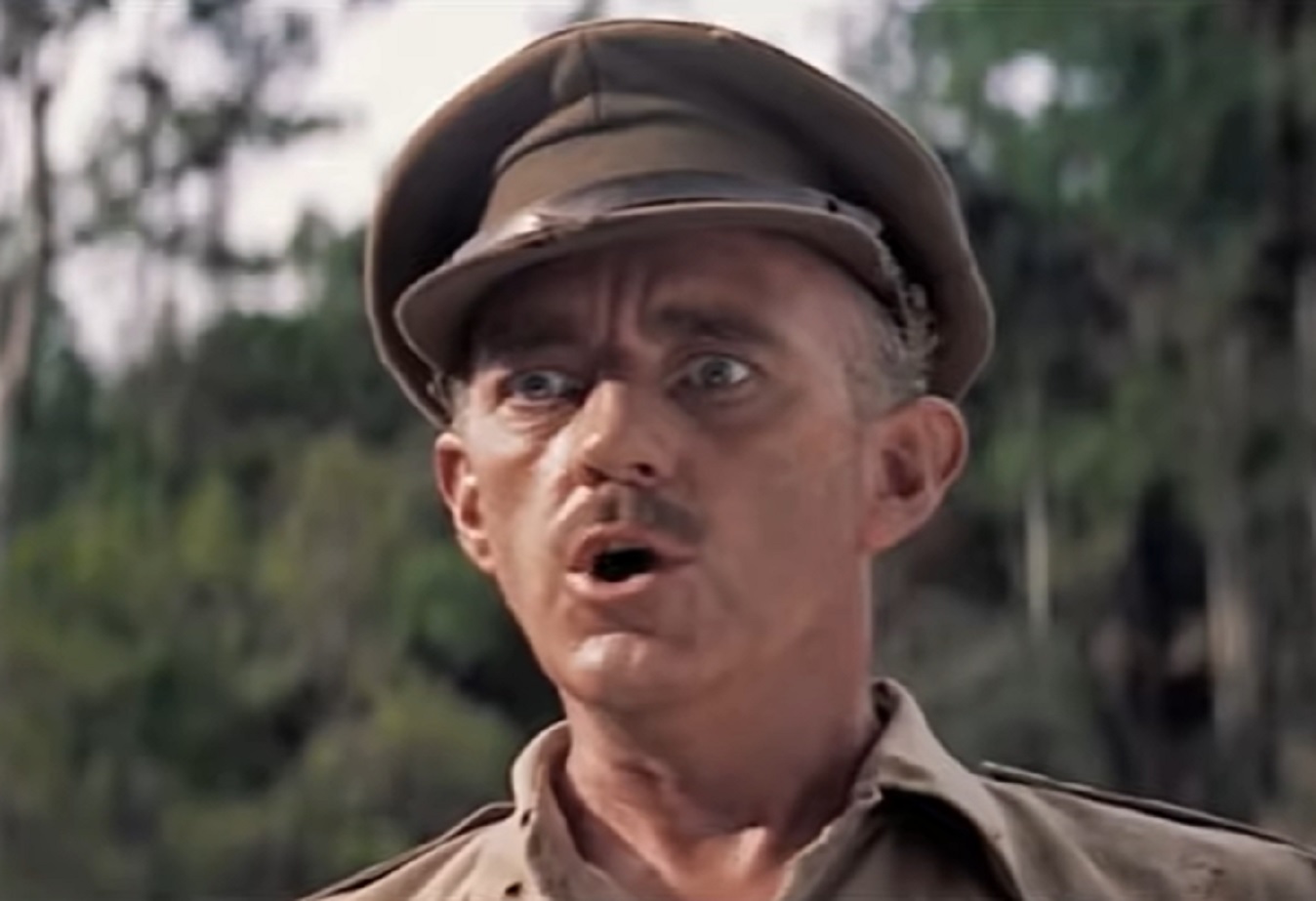 Horizon Pictures, The Bridge on the River Kwai (1957)
Horizon Pictures, The Bridge on the River Kwai (1957)
30. He Started To Bleed
In one scene in The Bridge on the River Kwai, a Japanese colonel has to hit Guinness across the face. The only problem is, actor Sessue Hayakawa wasn't supposed to actually connect. Guinness took the hit, but miraculously just kept acting—even as the blood started flowing—and the shot made it into the film.
This kind of devotion to a film surely required some recognition. Not from Lean. He was about to let Guinness know exactly how he felt. 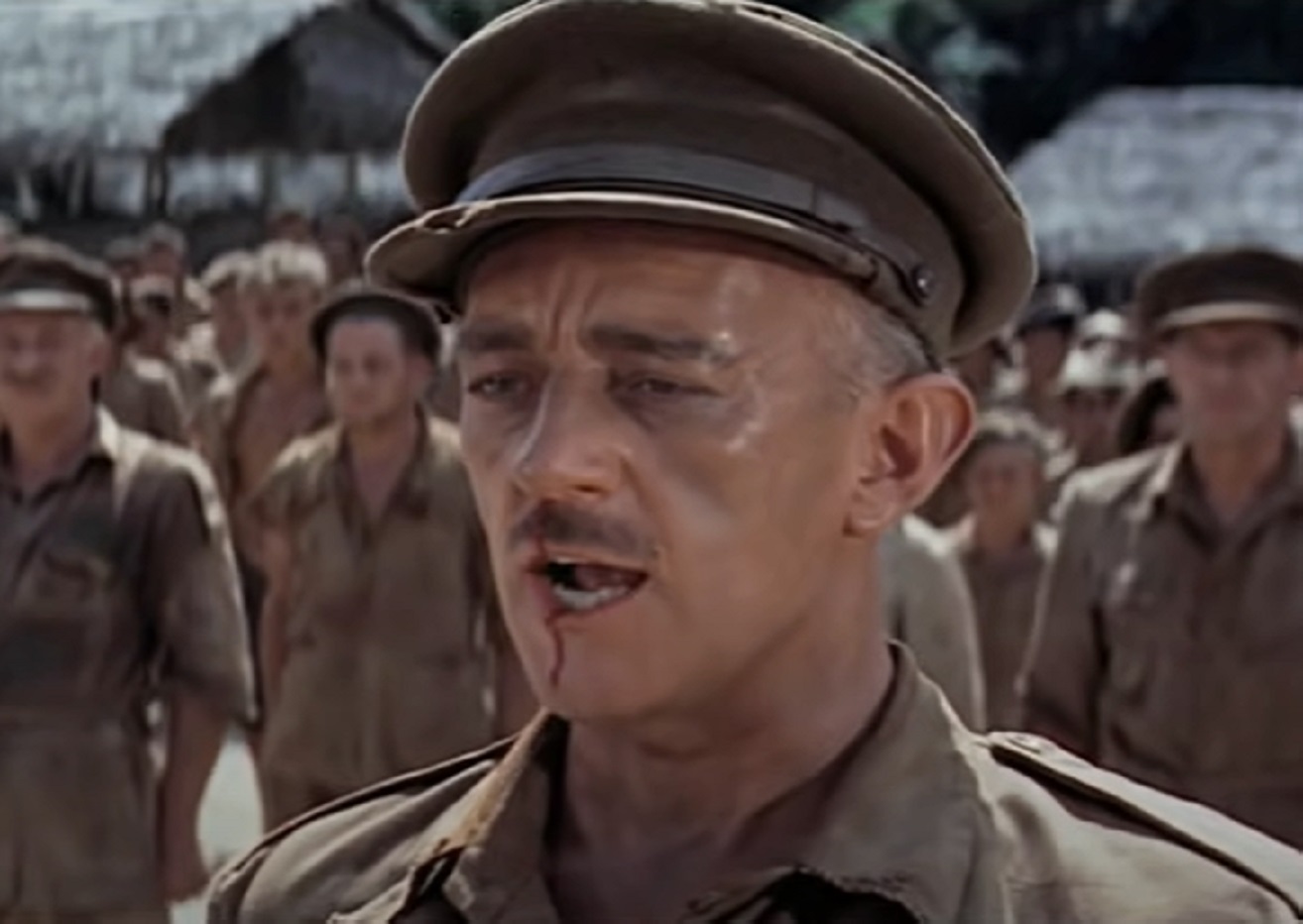 Horizon Pictures, The Bridge on the River Kwai (1957)
Horizon Pictures, The Bridge on the River Kwai (1957)
31. He Wasn’t The Favorite
Guinness and Lean were fighting like cats and dogs on The Bridge on the RIver Kwai, and one day Lean lost his filter. He’d just finished a scene with Guinness, and he rudely told all the British actors they could go home. Lean then thanked god that the next day he’d be working with an American actor. The easygoing William Holden had become Lean’s favorite on the film.
Playing favorites sounds a little childish. Well, two can play at that game.
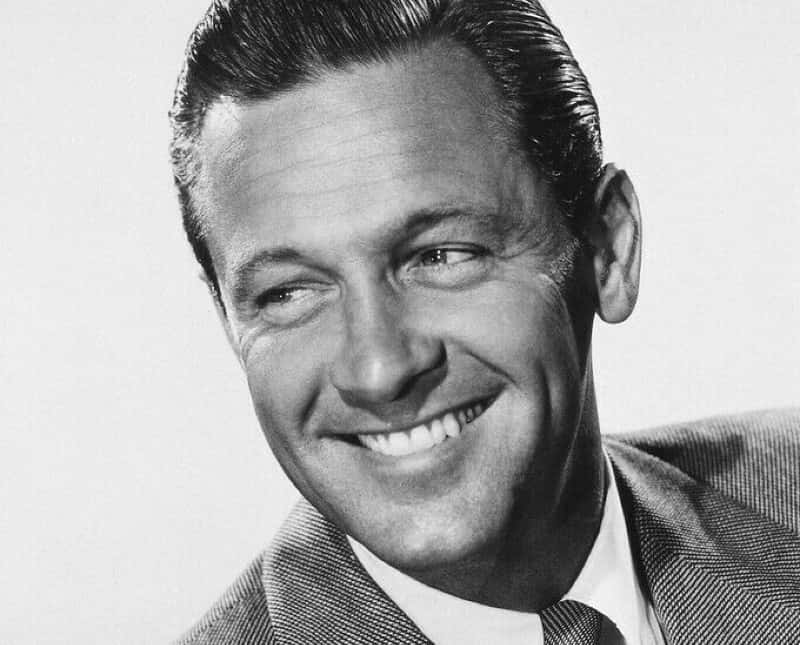 Studio Publicity, Wikimedia Commons
Studio Publicity, Wikimedia Commons
32. He Refused To Come Out
Guinness’ next film, The Horse's Mouth, was about a problematic painter. But it was Guinness who was the real problem. One day the director allegedly found Guinness holed up in his dressing room and refusing to come out. When asked why, he complained that they hadn't been complimenting him enough.
Well, if that's what he wanted, he was about to get the best kind of recognition Hollywood had to offer.
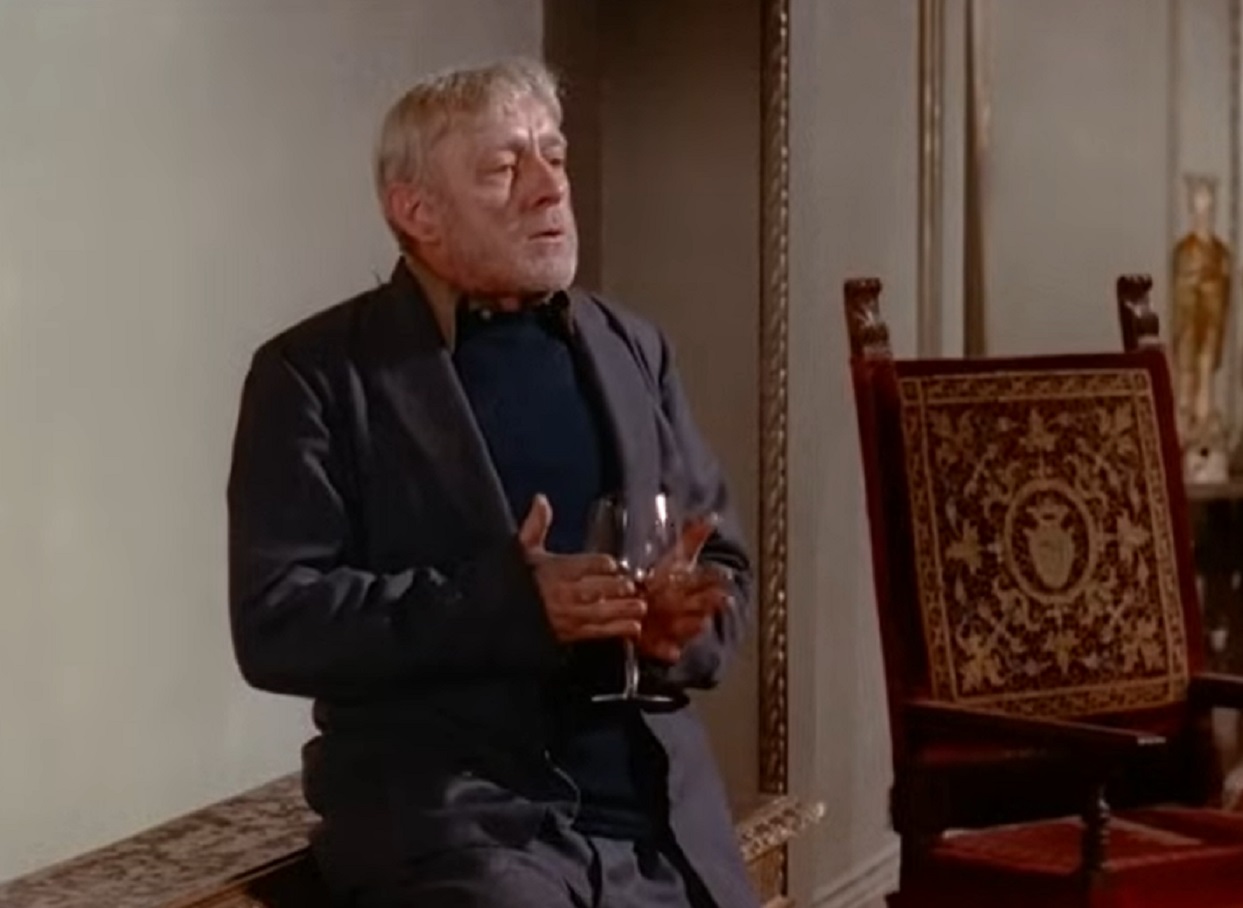 Knightsbridge Films, The Horse's Mouth (1958)
Knightsbridge Films, The Horse's Mouth (1958)
33. He Was Way Too Busy
While still filming The Horse’s Mouth, Guinness found out he was up for a Best Actor Oscar for The Bridge on the River Kwai. He couldn’t exactly stop in the middle of filming and fly to LA for the ceremony, so he skipped it. Well, he won and only got his statue at a dinner in London.
Guinness showed up at the dinner still in costume for The Horse’s Mouth—he was just that busy. But the good news of winning the trophy soon soured when he made a terrible realization.
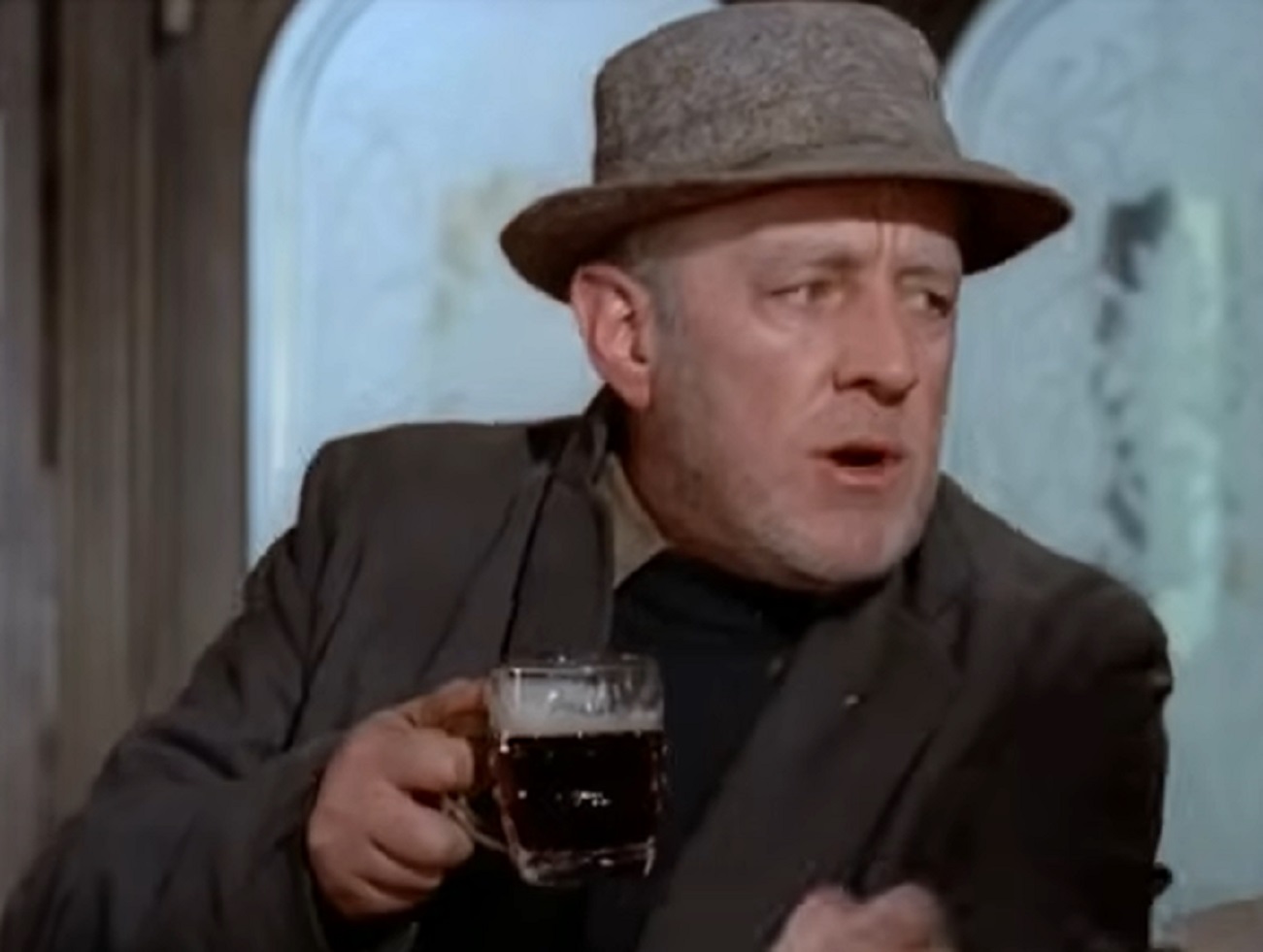 Knightsbridge Films, The Horse's Mouth (1958)
Knightsbridge Films, The Horse's Mouth (1958)
34. He Had A Sworn Enemy
Guinness and Lean’s film The Bridge On the River Kwai ended up with a total of seven Academy award wins that year. Something suddenly dawned on Guinness. He knew he had to continue working with a man who made his life miserable. Guinness and Lean eventually argued their way through six very successful films together.
A successful film was great publicity, but Guinness was about to get some that was just plain awful.
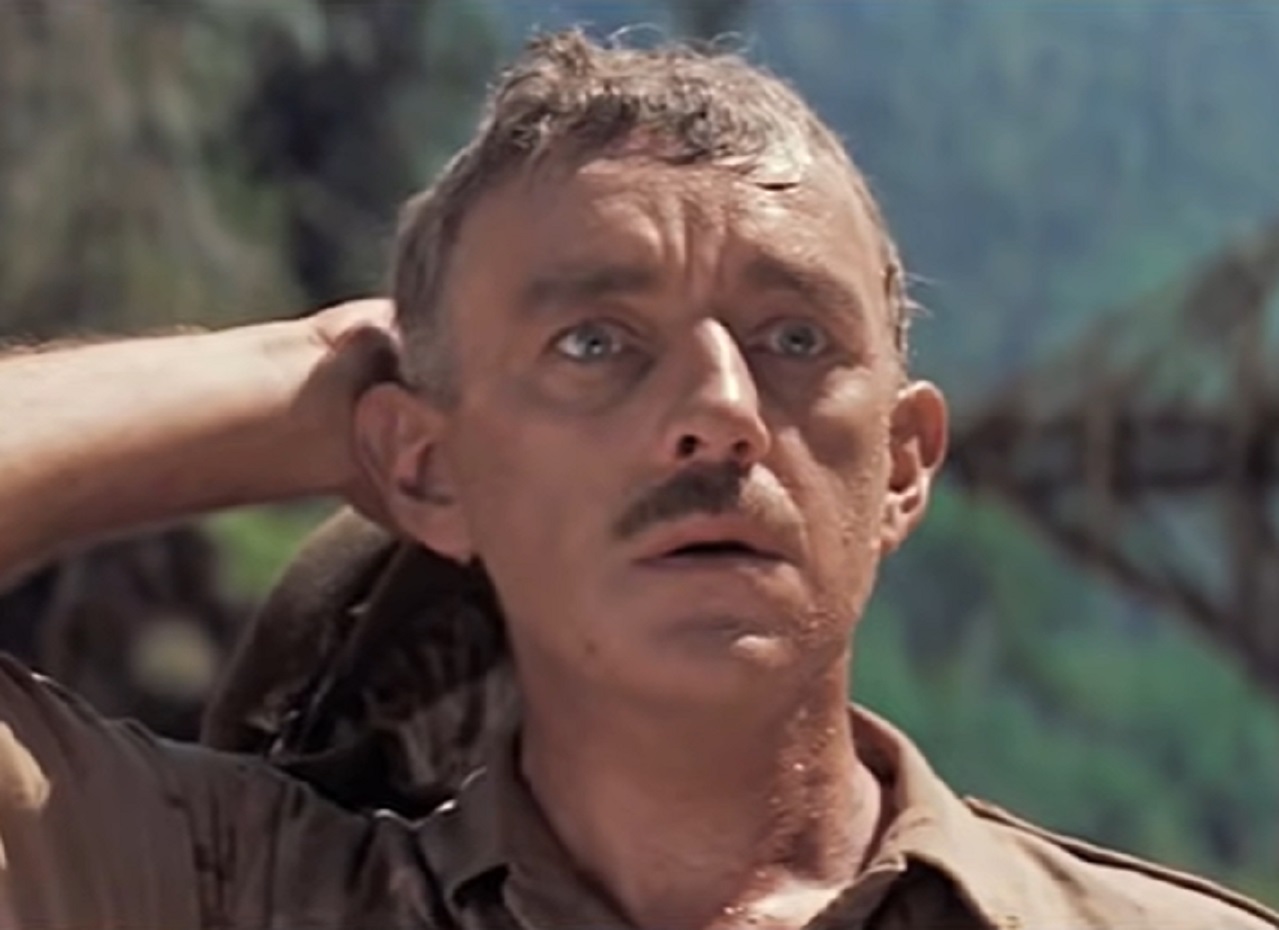 Horizon Pictures, The Bridge on the River Kwai (1957)
Horizon Pictures, The Bridge on the River Kwai (1957)
35. He Threatened To Sue
In 1965, actress Coral Browne announced that she’d heard that Guinness was in the washrooms once again looking for men. In the UK they call this act “cottaging”. Only when Guinness threatened to sue the actress did she dial back her story. That was one problem dealt with—but they just kept coming.
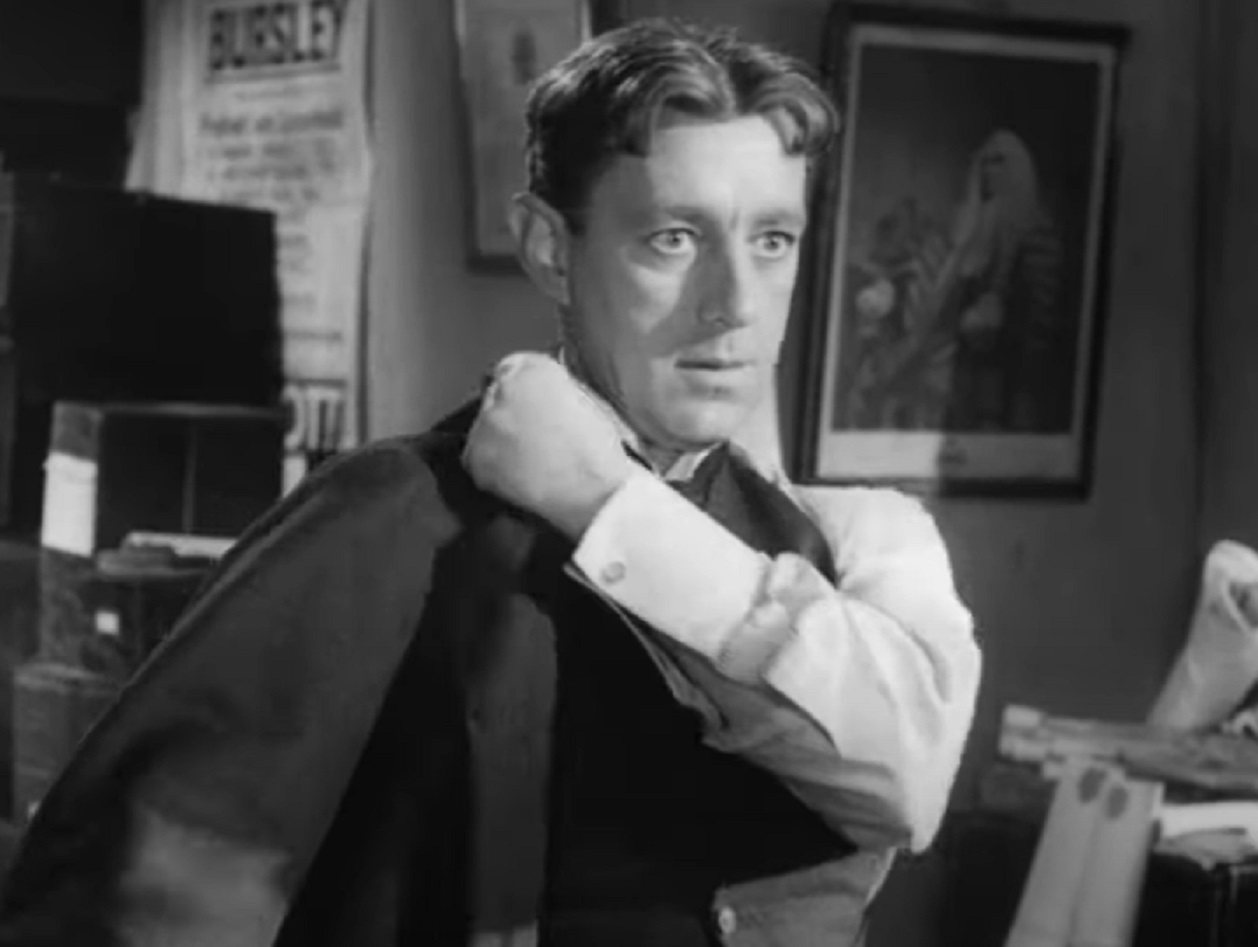 Ronald Neame Production, The Promoter (1952)
Ronald Neame Production, The Promoter (1952)
36. He Dressed Like A Monster
In 1973, Guinness got word that they were making a film about the last days of Hitler. The character was the worst possible villain, but Guinness wanted to play him. To get the roll, Guinness dressed up in costume—mustache and all—and took photos of himself on London streets. Surprisingly, no passerby even batted an eye.
All was well, until an unhappy officer of the law approached Guinness.
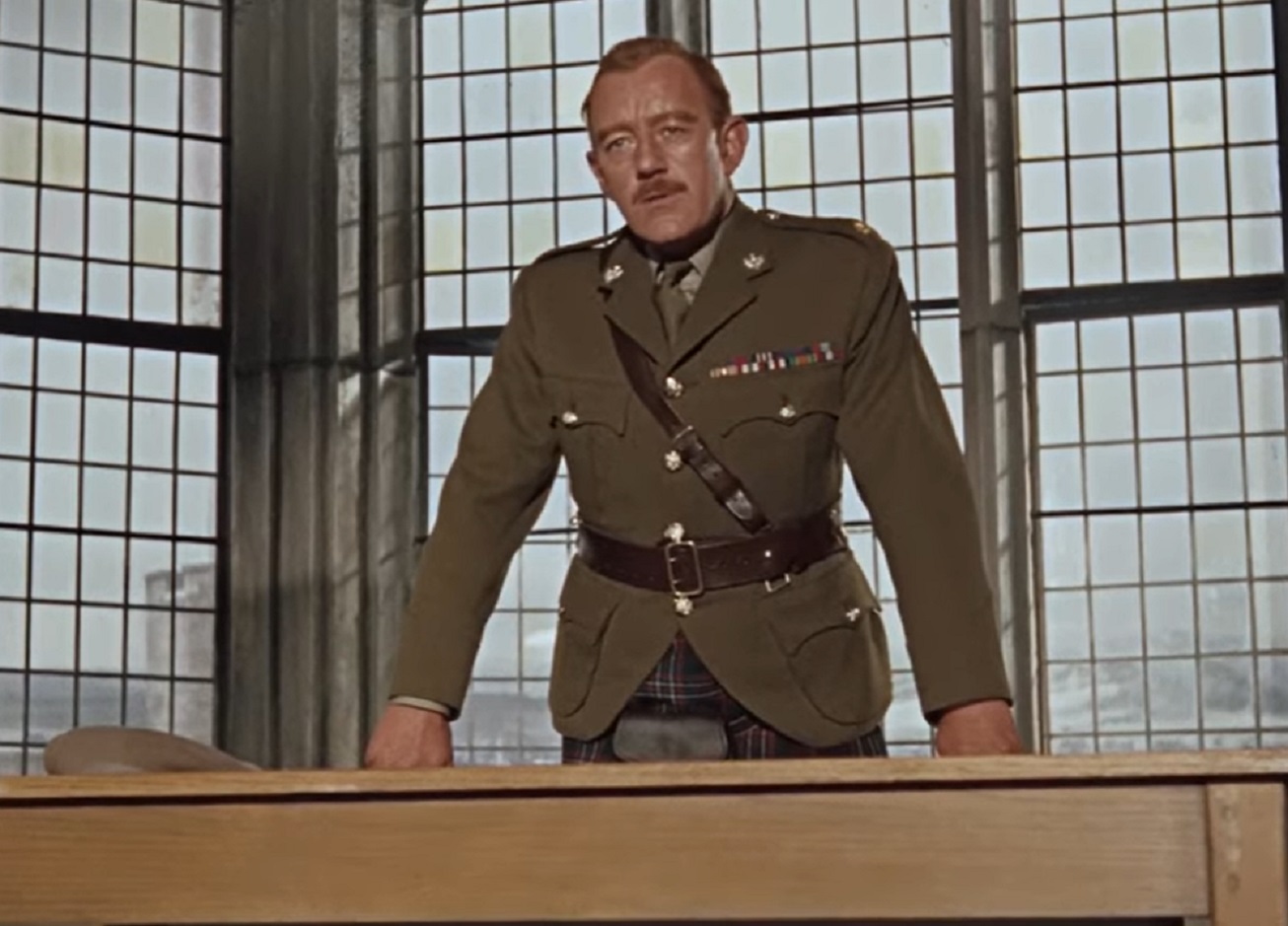 Knightsbridge Films, Tunes Of Glory (1960)
Knightsbridge Films, Tunes Of Glory (1960)
37. He Was Shaking In His Boots
When a British bobby saw Guinness, he had to do something. As the officer approached, Guinness was likely shaking in his goose stepping boots. He needn’t have. The officer was just letting Guinness know that his car was in a no parking zone. It certainly seemed like playing the role was not the career suicide that people thought it was.
After the darkest role possible, Guinness returned to comedy. But what happened on the next film was no laughing matter. 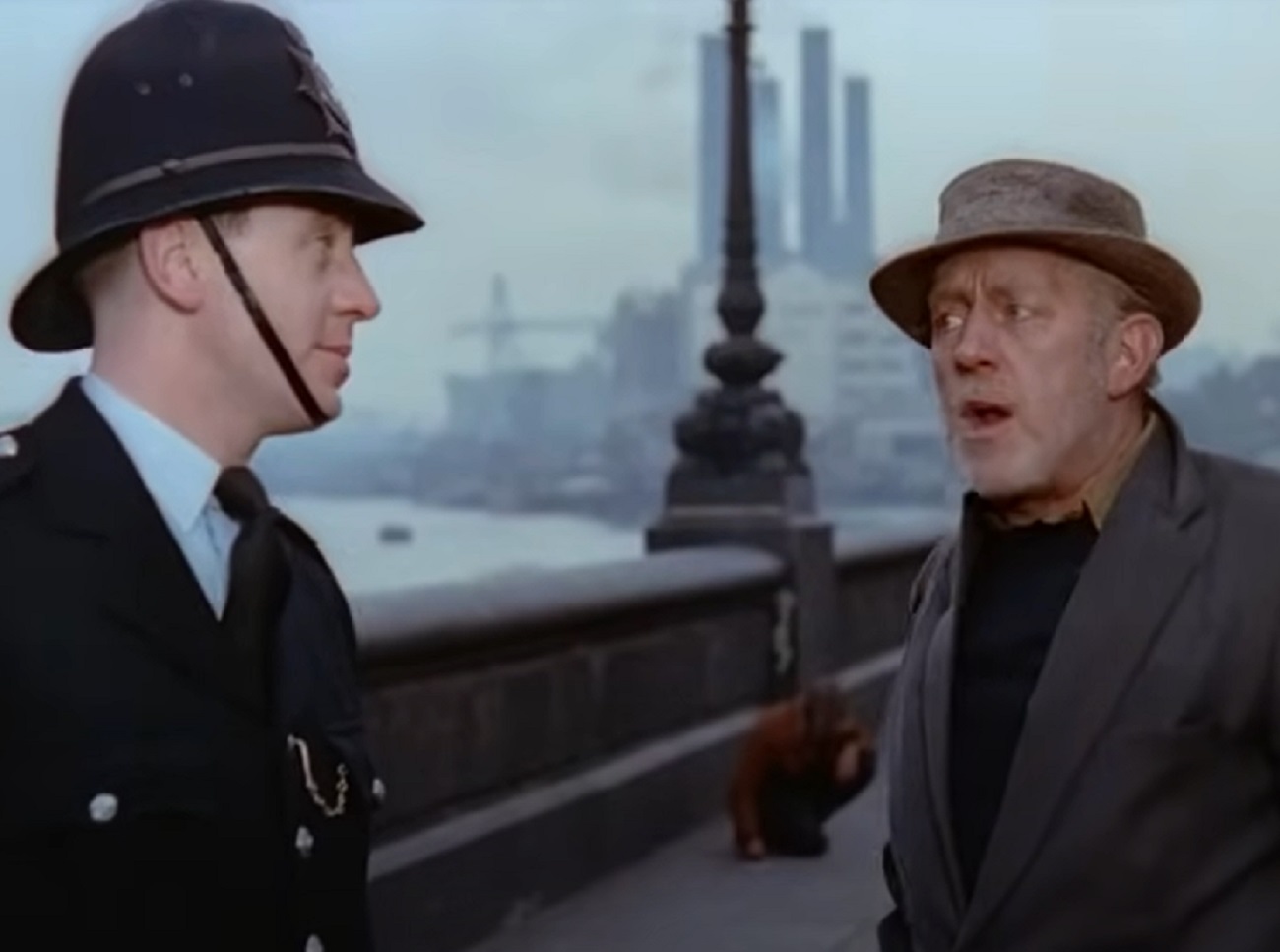 Knightsbridge Films, The Horse's Mouth (1958)
Knightsbridge Films, The Horse's Mouth (1958)
38. He Called To Complain
His next project was playwright Neil Simon's latest project. Guinness was already notorious for complaining about bad writing, so Simon was likely a little nervous. Little did he know, it was going to be even worse than he feared. He got a call from Guinness at an ungodly hour, demanding that he rewrite one of the scenes.
It looked like Guinness was starting a major feud—but there was something fishy about that phone call.
39. He Got Pranked
Peter Sellers, whom Guinness had met on The Ladykillers, was also on this film, and he’d decided to play a prank on both Guinness and Simon. It was actually him on the phone, doing a spot on impression of Guinness and giving Simon the scare of his life. When the truth finally came out, neither Guinness nor Simon found it at all funny. 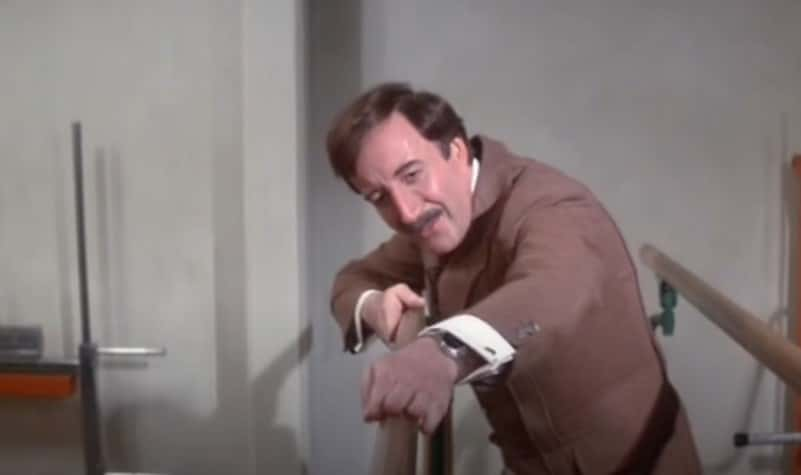 The Pink Panther Strikes Again (1976), United Artists
The Pink Panther Strikes Again (1976), United Artists
40. He Threw Himself At Him
In 1977, Guinness was working on a play when someone in the costume department dramatically quit. When the dust had cleared, a startling accusation came out. According to the costumer, Guinness had forced himself on him. This was a potential career destroying accusation that Guinness took as a sign.
A sign to remove himself completely from the situation.
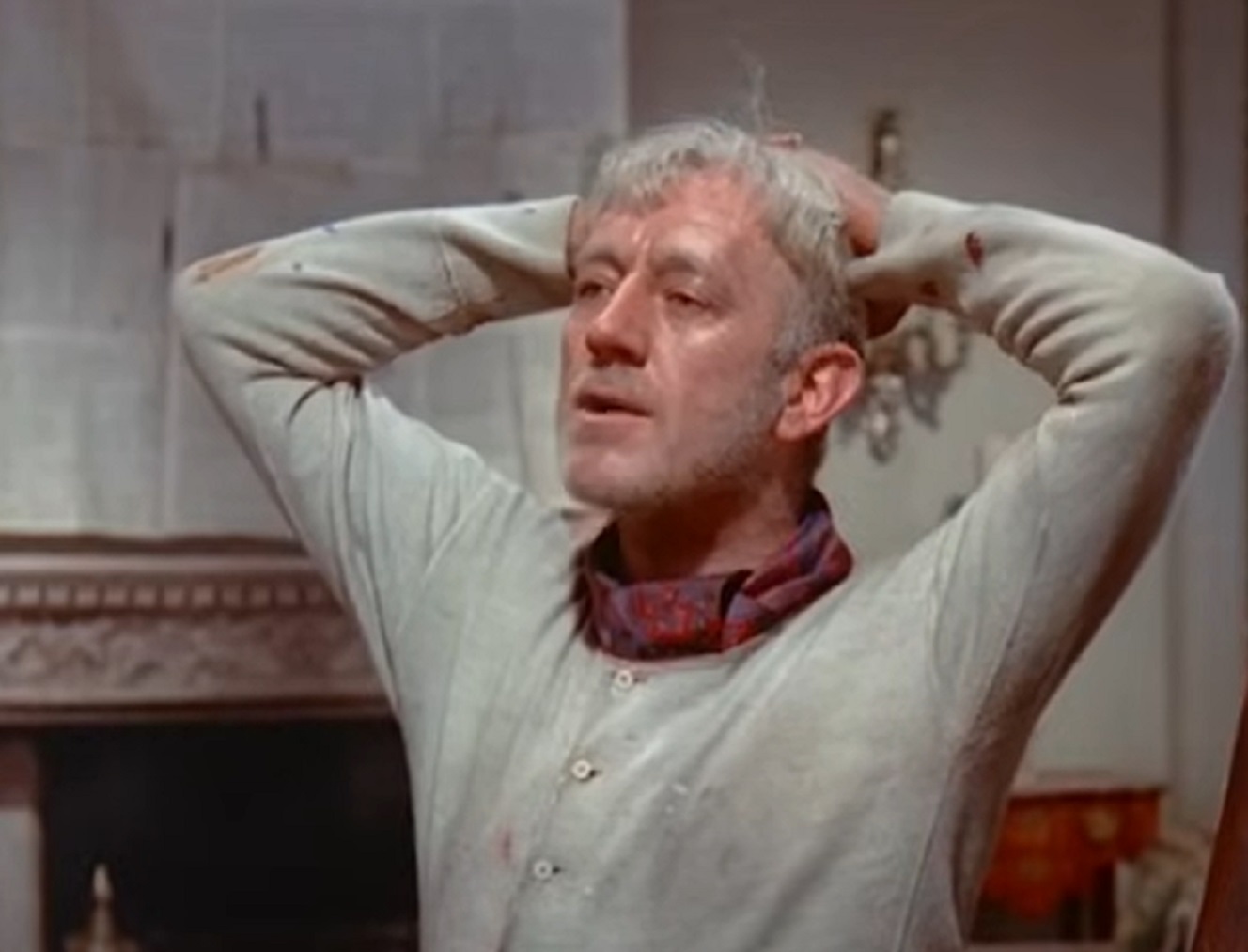 Knightsbridge Films, The Horse's Mouth (1958)
Knightsbridge Films, The Horse's Mouth (1958)
41. He Called It Rubbish
Lucky for Guinness, he had an offer in America. George Lucas was asking him to play Obi Wan Kenobi in Star Wars. Guinness wrote to a friend that the film was “fairy-tale rubbish”. In the end, Guinness said he would do it if the money was “proper”. Well, Lucas came up with the cash, but now he faced working with a classically trained actor who thought his script was garbage.
You could say, this was going to be a bumpy ride.
42. He Was The Old Guy
On Star Wars, Guinness was a respected, Oscar-winning actor...working with actors who were mostly on their first film. He said that on the set he felt like he was 90 years old. Although, it could have been much worse. You see, Harrison Ford and Mark Hammil said they actually improved their behavior when working on scenes with Guinness.
Guinness wasn’t getting along with his costars—and he also wasn’t getting along with the script either.
43. He Hated The Words
What made Guinness most unhappy about working on Star Wars was the dialogue. Guinness once again used the word “rubbish” this time for the words his character had to say. Guinness was not shy about offering suggestions for improvement to Lucas. The writer/director’s reaction to this advice was not what you might expect. 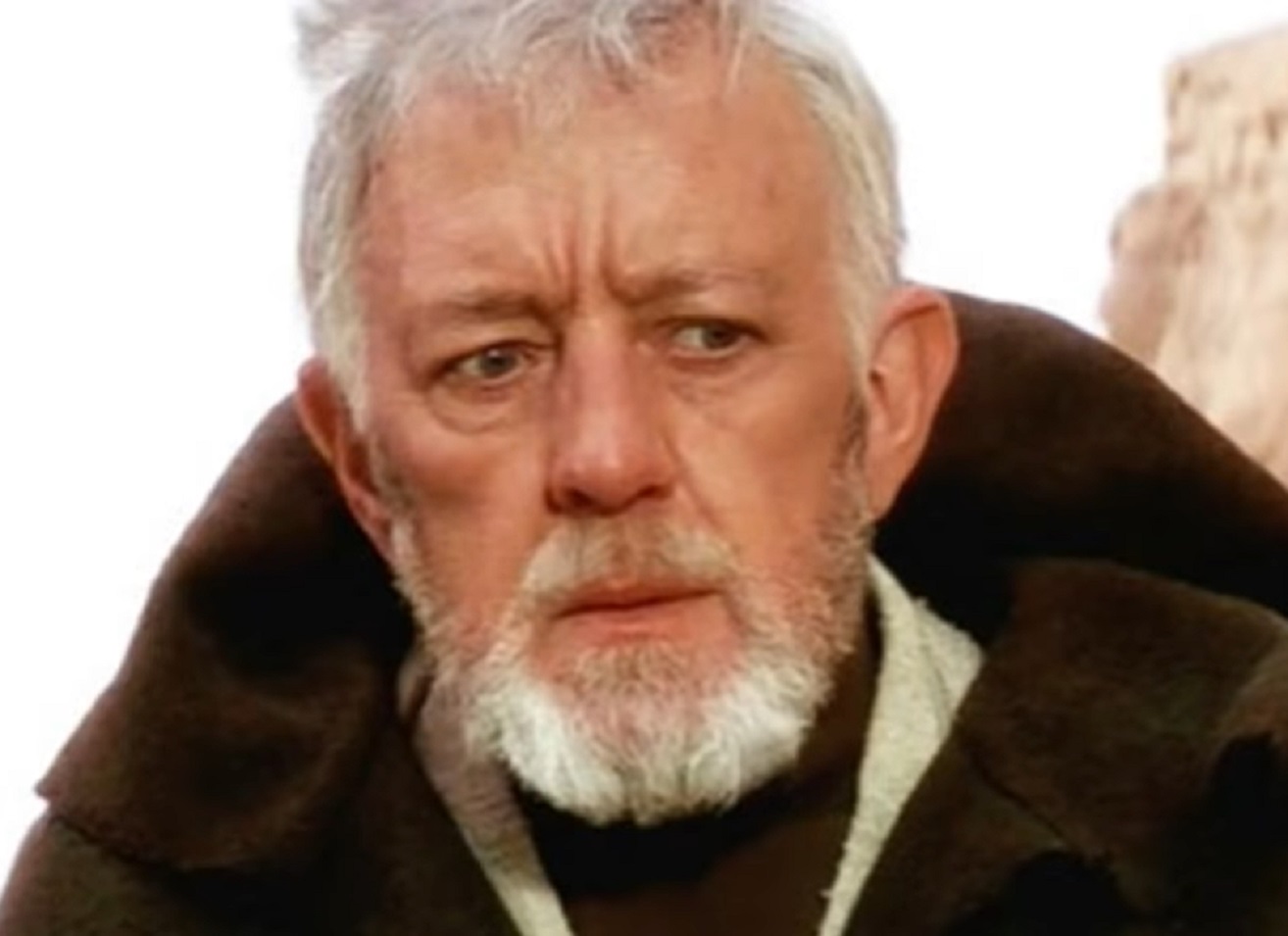 Twentieth Century Fox, Star Wars- Episode Iv (1977)
Twentieth Century Fox, Star Wars- Episode Iv (1977)
44. He Got A Small Gift
Instead of resenting Guinness for his script suggestions, Lucas thanked him and offered Guinness another quarter of a percent over the 2% of the box office he was already getting. Lucas thought the film would be a flop, and this extra gift would amount to nothing. When Star Wars turned into a hit, this “little” gift equaled close to $2 million.
So, how did Guinness really feel about Star Wars? One autograph seeker found out the stunning truth.
45. He Made Him Promise
When someone pushed Guinness for his reaction to Star Wars, he called it "noisy" with "excruciating" dialogue. He reportedly refused to read any fan mail associated with the film, and even once told an autograph seeker that he would only sign if the child promised to never see Star Wars again—effectively reducing the young fan to tears. Clearly Guinness was in a mood.
Well, get ready for more sparks to fly, because Guinness was about to join up with his “frenemy’ Lean for one more film. 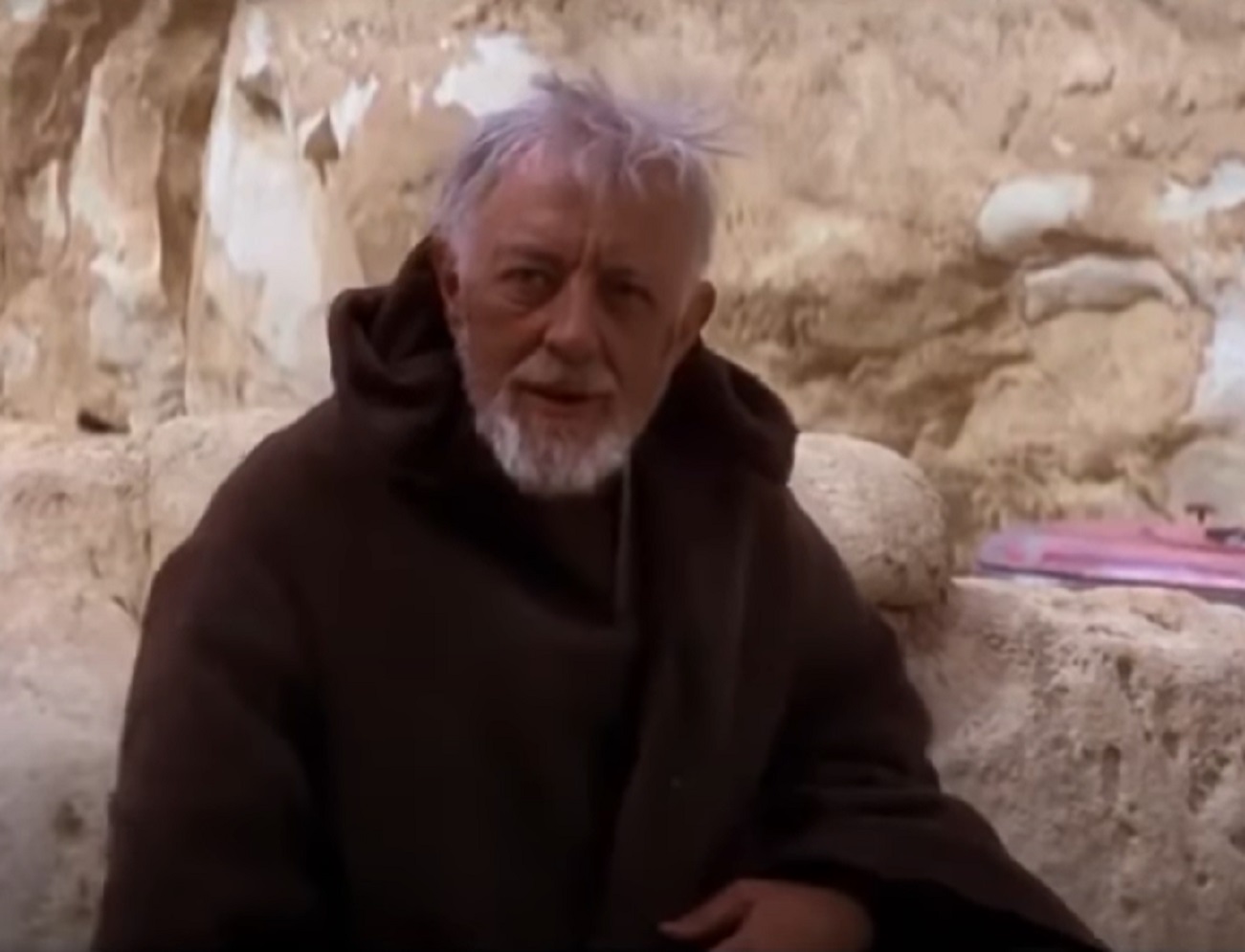 Twentieth Century Fox, Star Wars- Episode Iv (1977)
Twentieth Century Fox, Star Wars- Episode Iv (1977)
46. He Was Plagued With Worry
Guinness hesitantly partnered with David Lean for 1984’s A Passage to India. It didn’t take long for the two men to start fighting on set again. Guinness’ problem was that he was playing an Indian character, and he didn't feel good about it. He didn’t want to come across as another stereotype.
Lean offered exactly zero support for Guinness, and he ended up getting the last—and hurtful—laugh.
47. He Got Cut
When A Passage to India was complete, Lean finally admitted that Guinness’ portrayal was indeed a stereotype. Then did something completely heartless. He cut Guinness almost entirely from the film. It was the last time the two men would work together, and the last time they would speak. It was the end of an era for Guinness.
Now, He had to show the world that he didn’t need Lean to make a great movie.
48. He Had To Prove It
For one of his final major roles, Guinness returned to author Charles Dickens. This was Little Dorrit, and it won Guinness nominations for Best Supporting Actor from the Academy and the Golden Globes. As it turned out, Guinness didn’t need Lean at all.
But sadly, Guinness’ rollercoaster career was coming to an end.
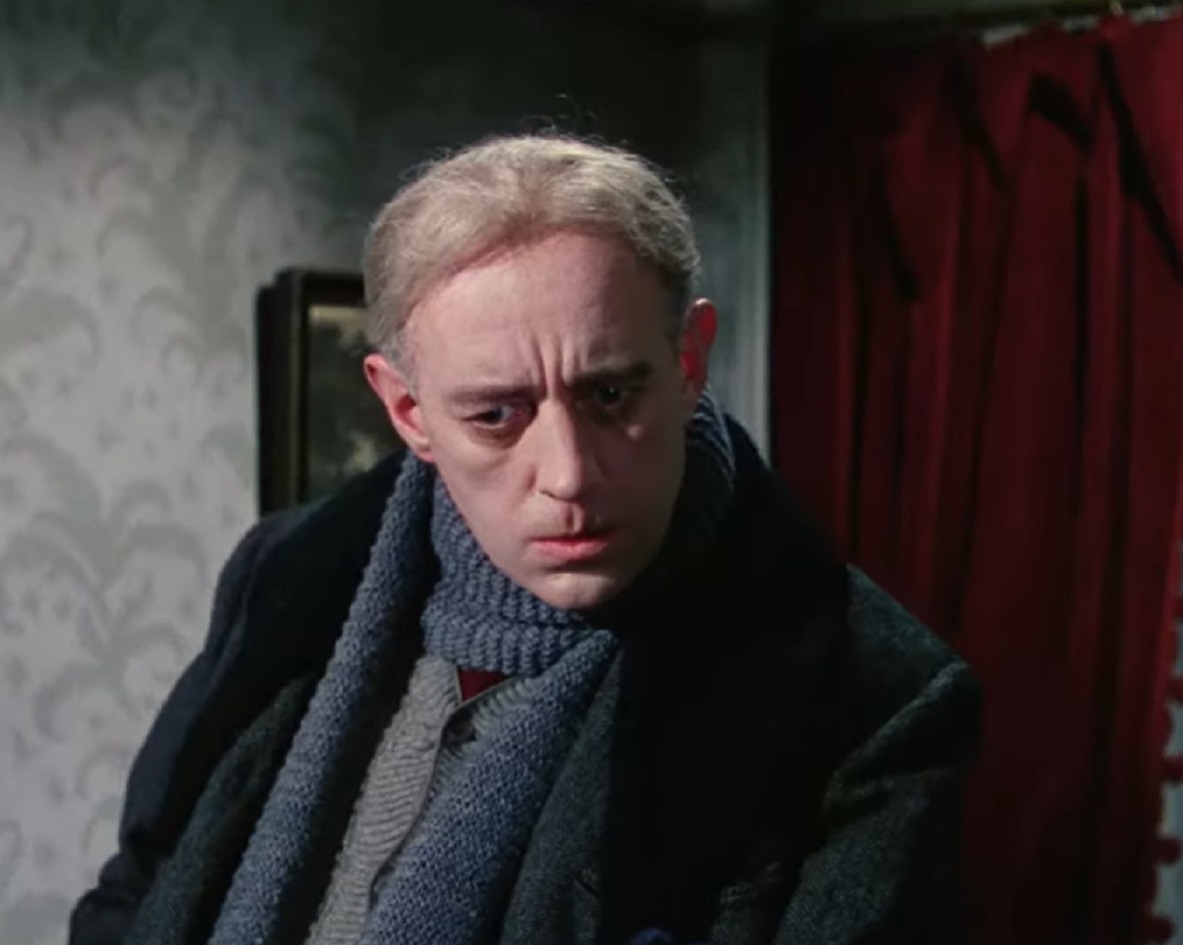 Ealing Studios, The Ladykillers (1955)
Ealing Studios, The Ladykillers (1955)
49. He Just Wanted To Hide
After making a few more—mostly forgettable—films, Guinness passed on August 5, 2000. While he was definitely a man who disappeared into his roles, he was also one who disappeared in real life too. You only have to look at the titles of his autobiographies to see it: Blessings in Disguise and My Name Escapes Me.
Luckily, we have his diaries to see the real Guinness.
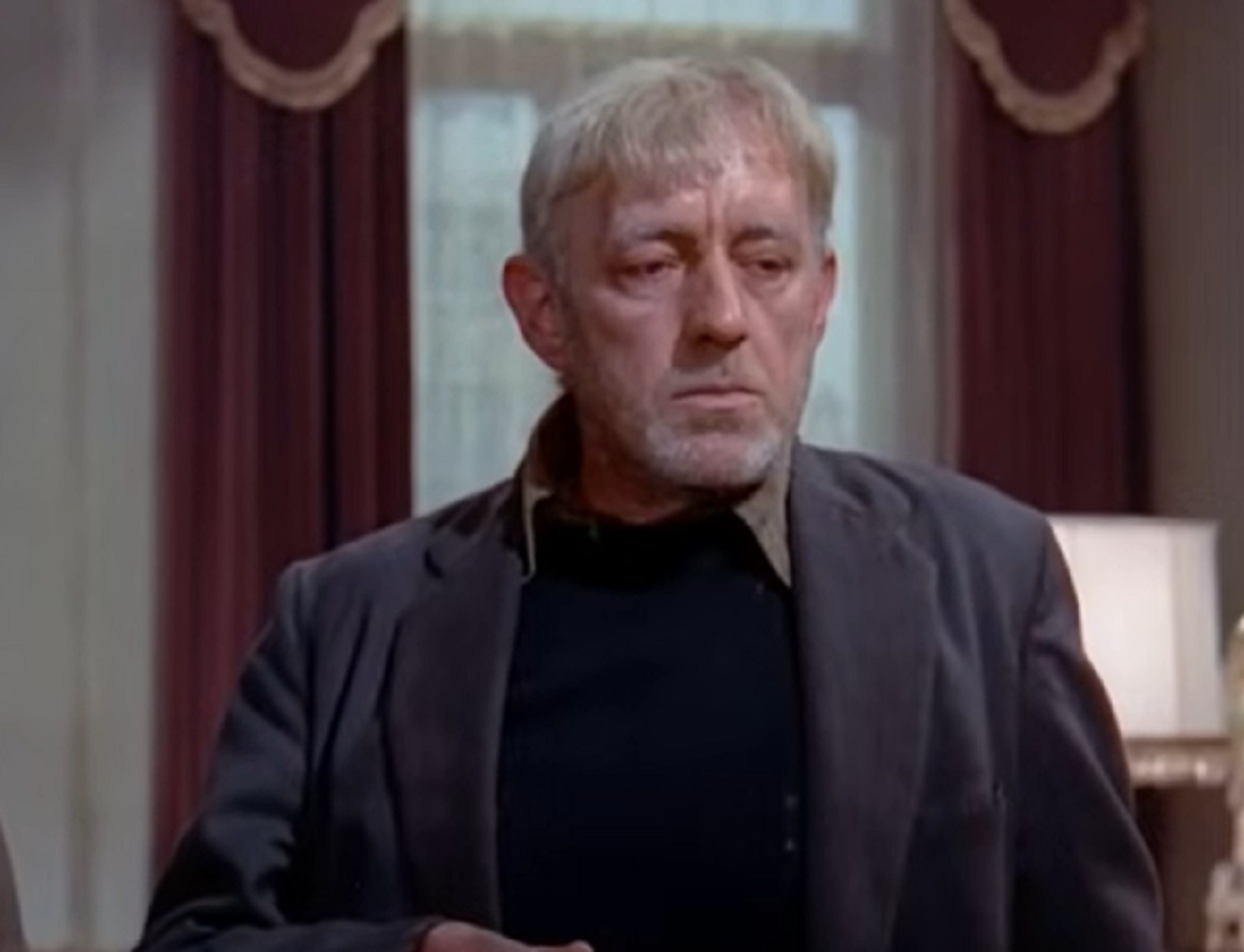 Knightsbridge Films, The Horse's Mouth (1958)
Knightsbridge Films, The Horse's Mouth (1958)
50. He Wasn’t Nice
Guinness painstakingly wrote down all the little things that bothered him about people in letters and diaries. He used unflattering terms like “windy and opportunist” and “gap-toothed and vulgar”. It sounds to me that Guinness was not a very nice person. Costume designer Percy Harris may have known him best. She said Guinness was a “not very nice man trying to be a good one”.
Some may think he could have tried harder.
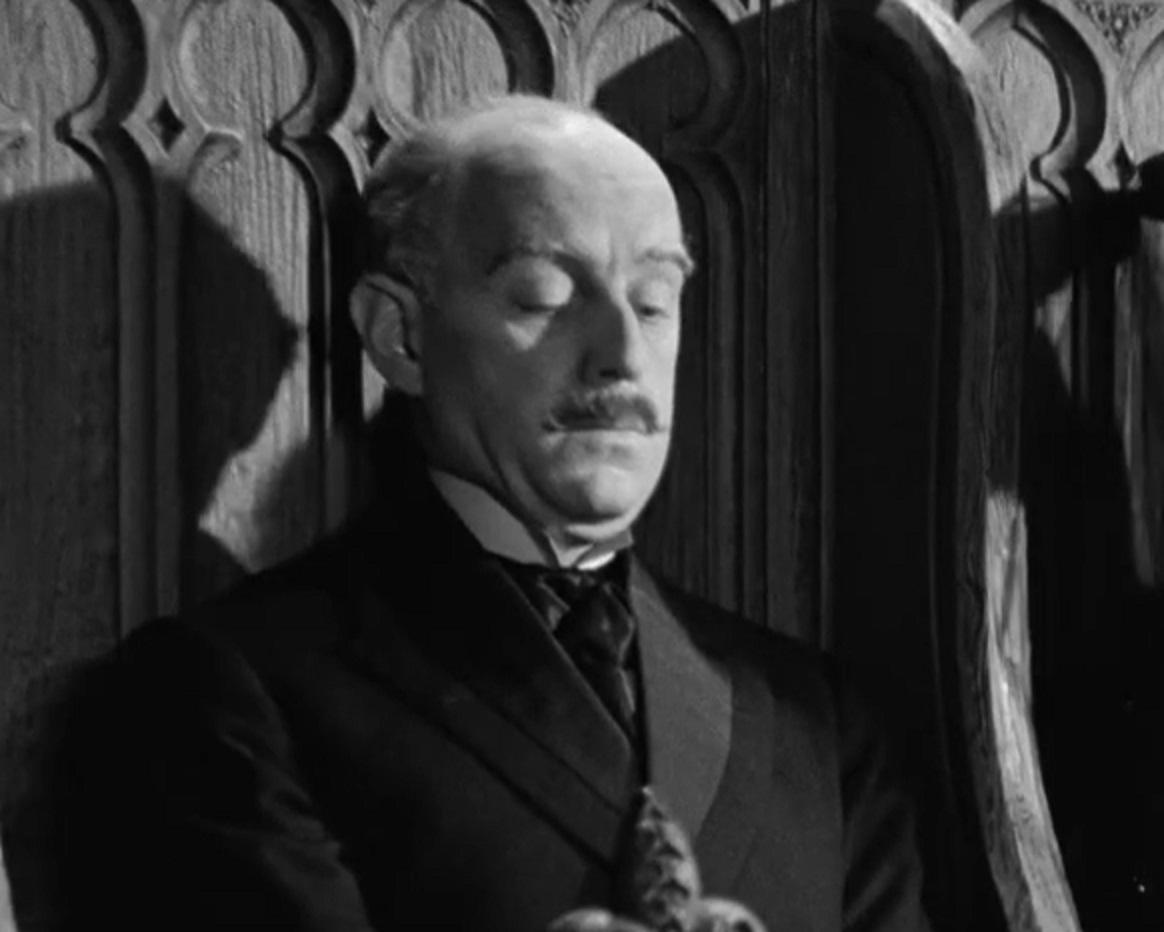 Ealing Studios, Kind Hearts and Coronets (1949)
Ealing Studios, Kind Hearts and Coronets (1949)

